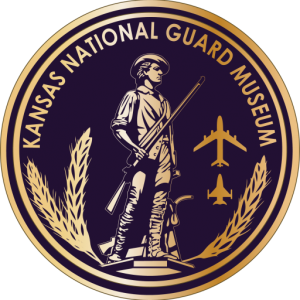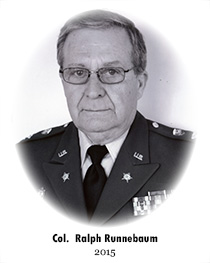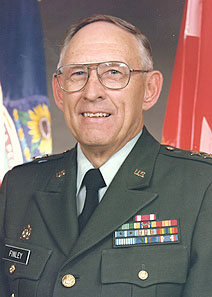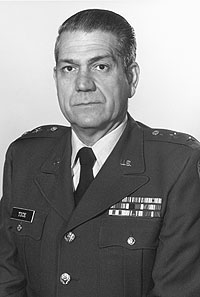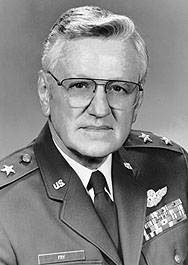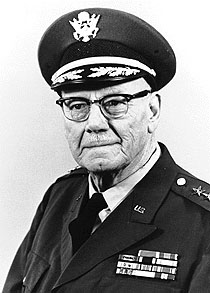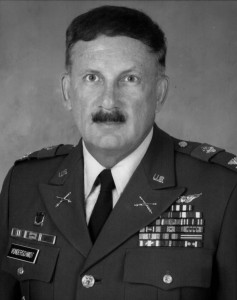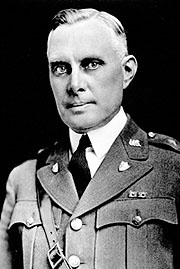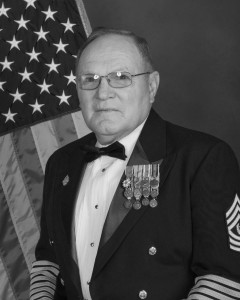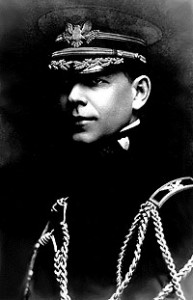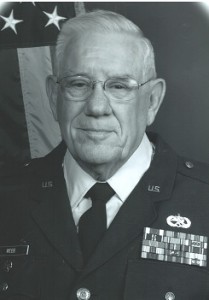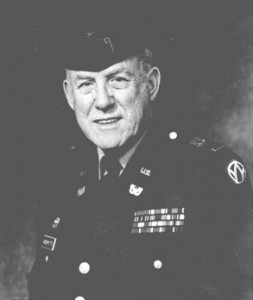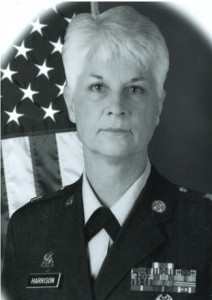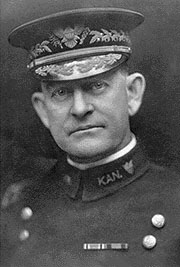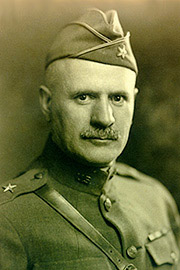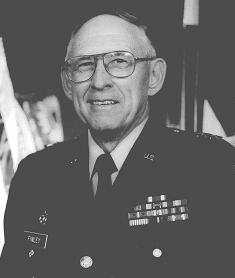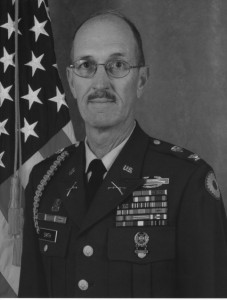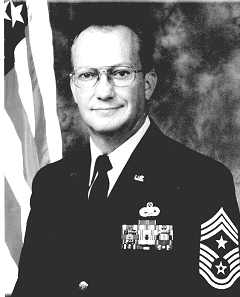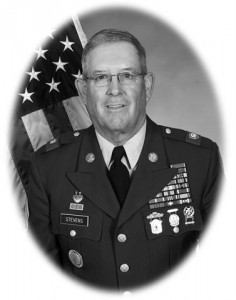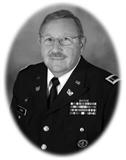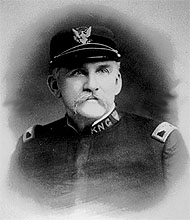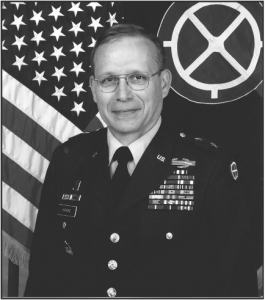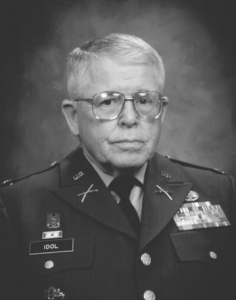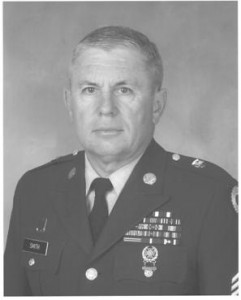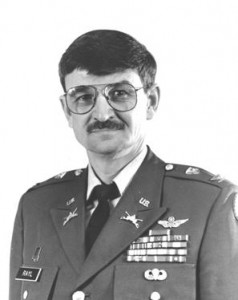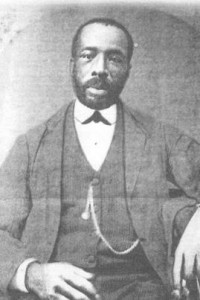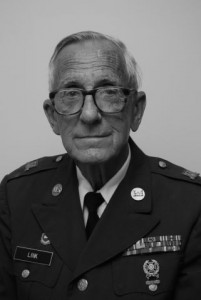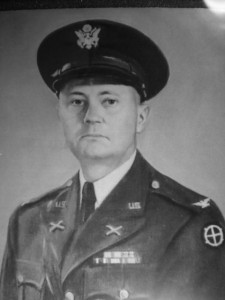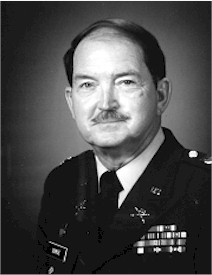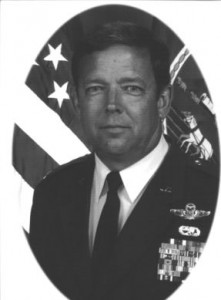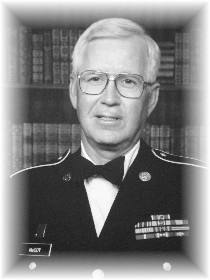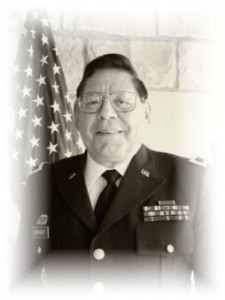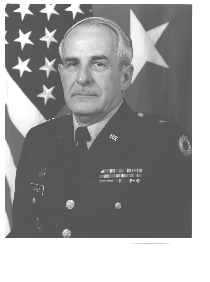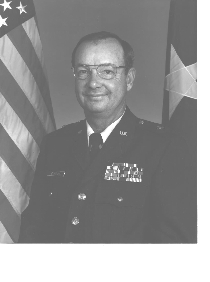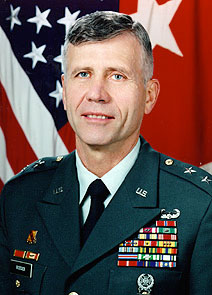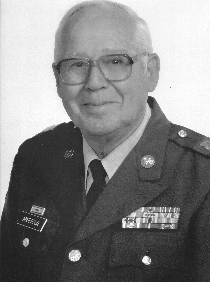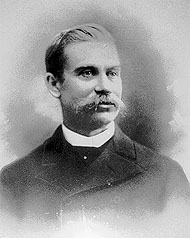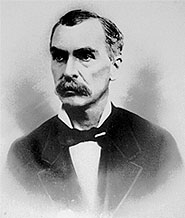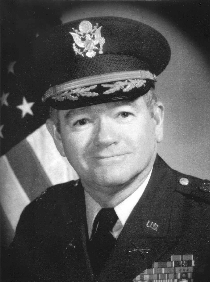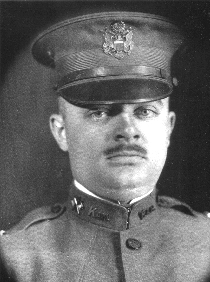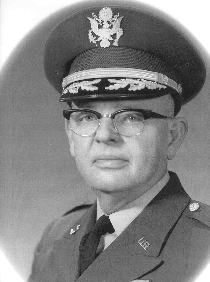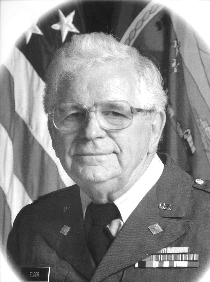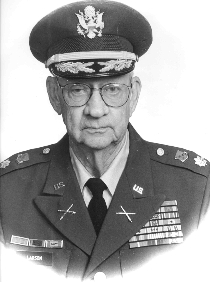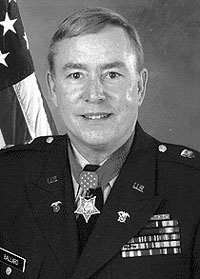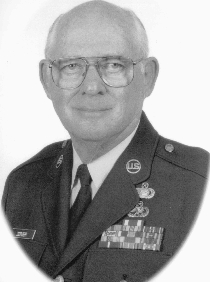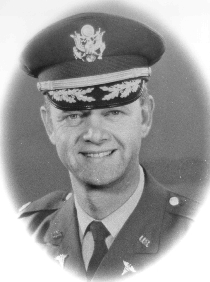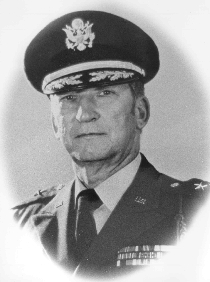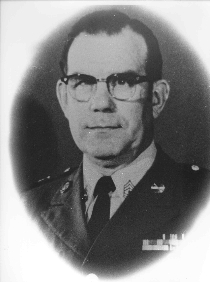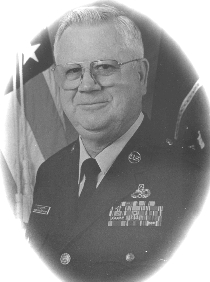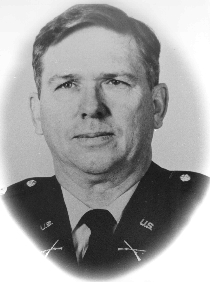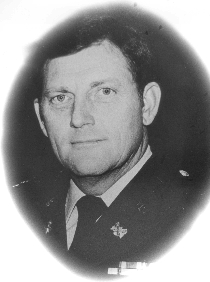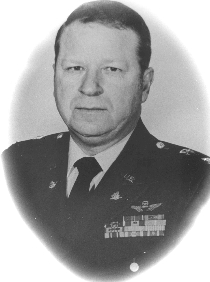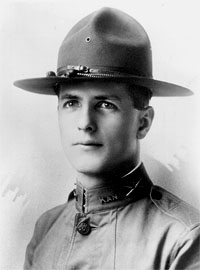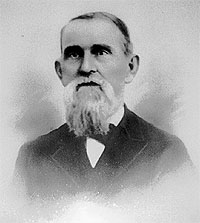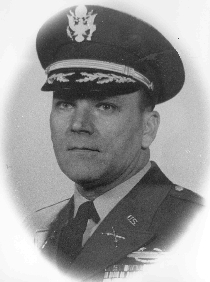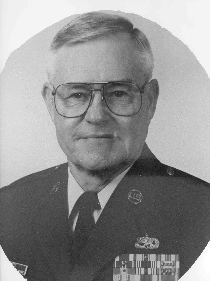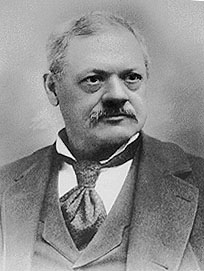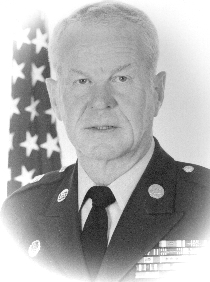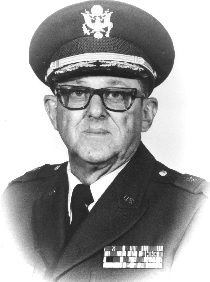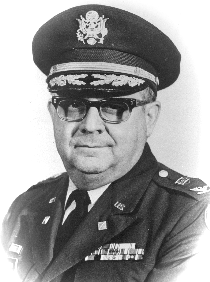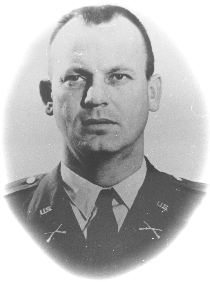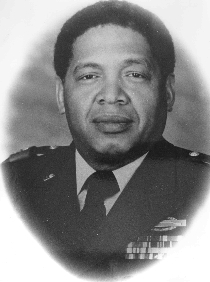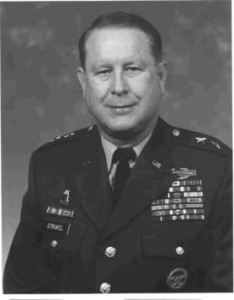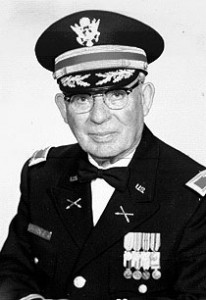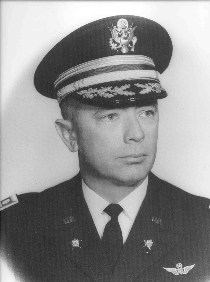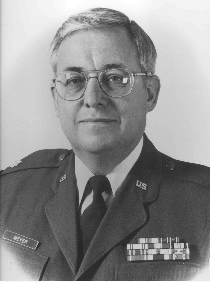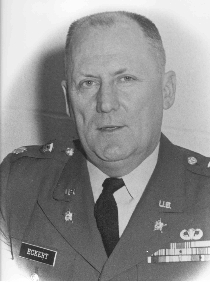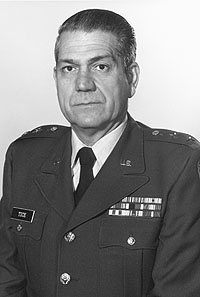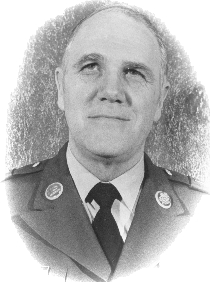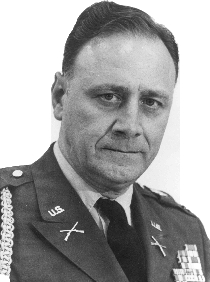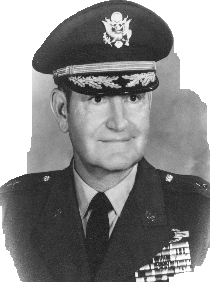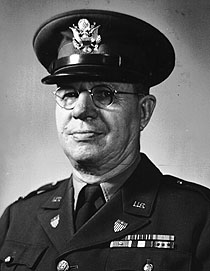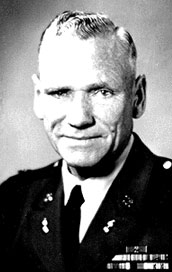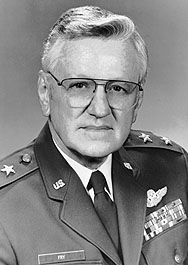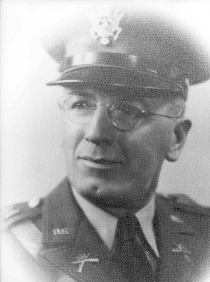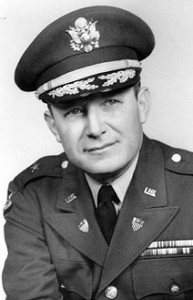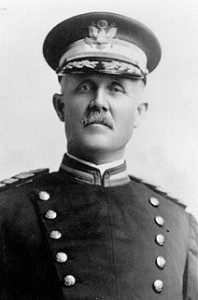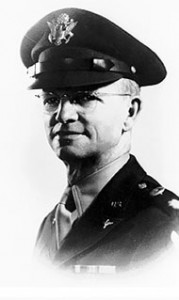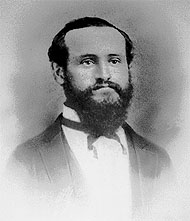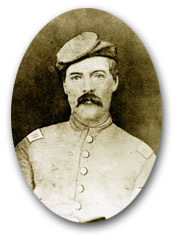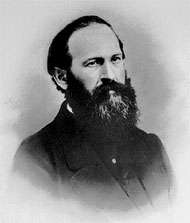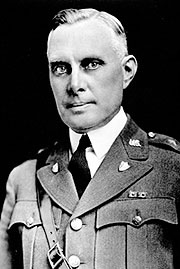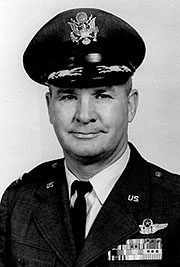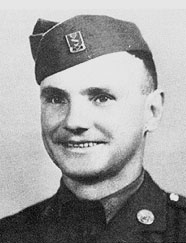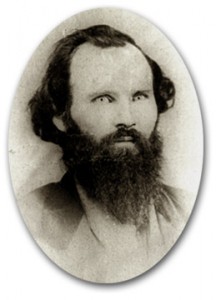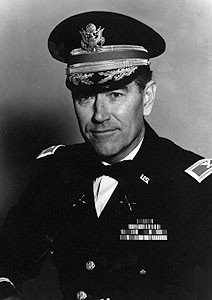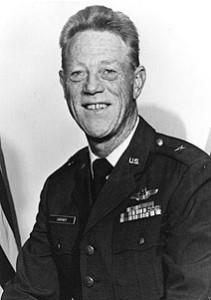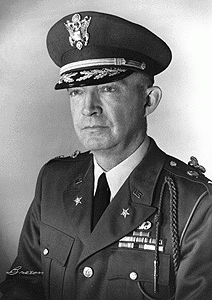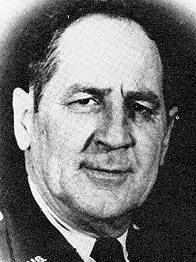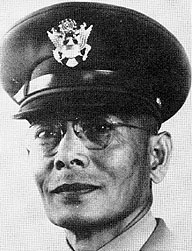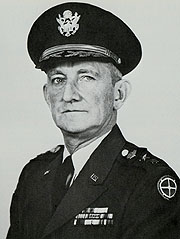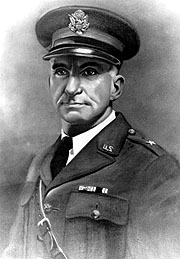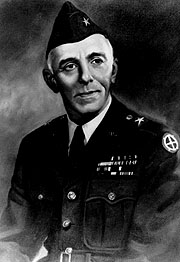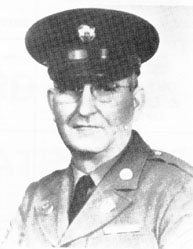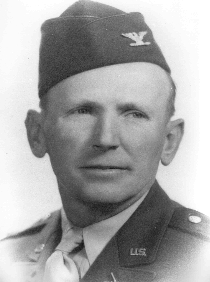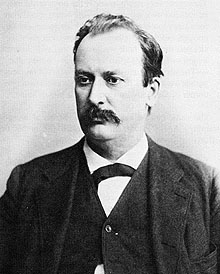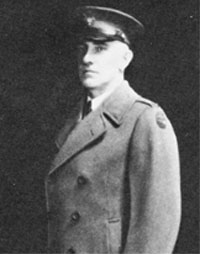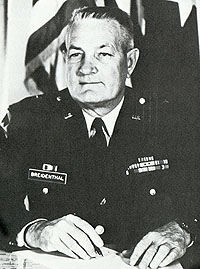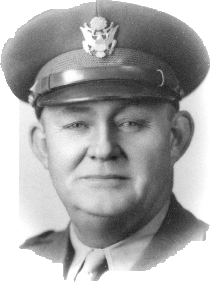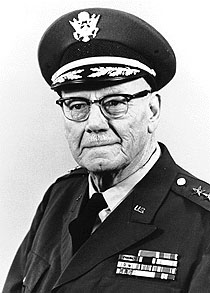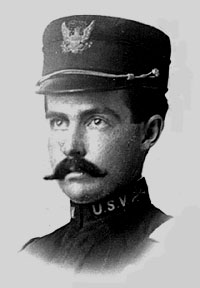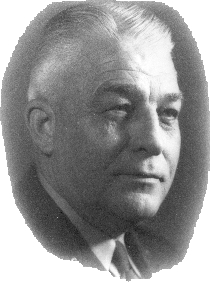REFLECTIONS OF A COMBAT INFANTRYMAN
By James Graff
(Copyright James Graff 1977)
INTRODUCTION
I am a native of Middletown, Illinois and was born on August 20, 1925, raised in a small town and moved to the farm in 1941 and have been a farmer ever since.
I was inducted into the army at Fort Sheridan, Illinois on May 27, 1944 and moved to Camp Hood, Texas and went through 23 weeks of basic training in the IRTC there. Departed for the ET0 on December 22, 1944 and after my overseas service in C company, 104th Inf., 5th Div., I returned to the states on September 10, 1945. Afterwards I was transferred to Co. K., 2nd Inf., 5th Div. at Camp Campbell, Kentucky. I was separated from the service on April 24, 1946 at Fort Sheridan.
This account was written by me 31 years after the events had taken place. I have tried to avoid using too many dates as my memory, although good, is not that good and in combat we did not keep a calendar as we took each day as it came.
I was encouraged by many of my comrades and also my family (wife, 3 daughters and 1 son) to write of my experiences. I have used names and hope no hard feelings will be felt, but this account is of my true feeling and memories of events as I saw them.
I have a warm compassion in my heart for my many comrades in arms and hope that they hold good memories of me. We were for the most part, good soldiers who fought a good fight in a just cause.
My wife and I have got to know many of my comrades and their families through the years and we find them to be very good and true friends in peace as my comrades were in war.
My thoughts in this book were influenced by my very good friends Bob Landrum of Missouri, Kenneth McCrae and Herman Genrich of Nebraska, Joe Kelso of Texas, Marvin Gardner of Iowa and Rex Storm of Illinois. Also I must include Elwell Sanborn of New Hampshire, James Steinhaufel of Colorado and, of course, the late Roger Pitcock of Texas. All these and many more were my comrades in arms in the 35th Division.
DEDICATION
I want to dedicate this book to all the men living and dead who served in the 35th Division during World War II.
As I served in the 134th Infantry Regiment, this is primarily the story of that unit although I believe the following pages could be a part of any infantry unit. The story is just the same only the names and places are different.
As a veteran of this unit, I am proud of my service in it; I am justly proud of its achievements and believe that its war record stands second to none among the infantry regiments of the United States Army.
Lastly I must voice our battle cry which has a familiar ring to all ex-members of the 134th—“Lah We Lah His. We Move On Sunday!” The regiment motto was taken from the Pawnee Indians and translates into “TheStrong-The Brave” (we seemed to have our worst battles on Sunday).
EVENTS OF OUR OVERSEAS SERVICE
After leaving Camp Hood, Texas with a 10 day delay enroute home, we arrived at Fort Meade, Maryland. We did some training, including firing on the rifle range, then had a train ride (through New York City at night) to Camp Myles Standish at Boston, Massachusetts.
We were trucked down to the Boston docks and loaded on the British liner, Aquatania. This ship hauled troops to the Dardanelles Campaign in W.W.I. We went on board ship as advance party. I was a salt water corporal and went to carry food to the serving line. Boarded ship December 20. I never saw so much mail–they loaded for 48 hours.
We had 8,000 men on board and guess who I saw? Bill Charis, a boy from near home. I had run across him in Fort Meade and now I see him about every day in the chow line and also saw him the evening I got off the boat. We were packed four high and not much room to move, but the monotony of it was broken by our KP work. Sure liked to watch the water and it was pretty at night–no lights–just the sky and stars. It was a little scary throwing garbage off the fantail with no railing at night. Christmas Eve on the ship saw an uproar by the men when the order came out for all enlisted men to go to their quarters and all officers to the saloon for Christmas Caroling. Christmas dinner featured pork chops.
We set sail December 22 and never saw land or another ship until we entered the Irish Sea on the seventh day out. Saw an airplane try to land on a small carrier, but it crashed over the side. Our destination was Greencock, Scotland which is the port for Glasglow. The ship docked late in the afternoon, or rather dropped anchor in the harbor and almost immediately we began to disembark. We had to walk over a narrow gang-plank to a small coal-fired British boat. We assembled on the dock and then were loaded on a train, which was to take us to Southhampton. Next morning we did see much of the English countryside and took a ride through London. Detrained at Southhampton and boarded trucks to a tent city. A lot of Italian prisoners were here and also colored G.I.’s. Requisitioned a gas lantern and some fuel from the Eye-ties. One night at Southhampton we went out through the fence and went to a local pub.
The next day we were alerted for another move, onto trucks and down to the harbor and onto some small British ships for movement across the Channel. We crossed during the night, New Year’s Eve, and in daylight transferred to LST’s and were ferried to the beach and waded ashore. We were at Le Havre and the whole harbor was full of sunken ships. Masts and funnels marked their graves.
We marched through the town and up a hill which was pretty steep. We went into a tent city which at one time must have been a German ammo dump. Drew some PX rations and it rained. Next day we walked down and boarded trains for a move east. Three nights and two days of French boxcars and it was cold and snow covered the ground after the first night. One man fell under the train and lost a leg. Messed along the tracks–field kitchens with G.I. cooks and German P.0.W.’s to serve. No stools to go to the toilet. Just do it in your steel helmet and pass it to the door and hope somebody don’t throw hat and all out. Kelso fixed up a hammock, but the hammock and Kelso both fell down. Those frogs used the throttle and the brake very hard. Lots of guys’ feet began to freeze before we ever arrived at the front.
Morning of the third day on the 40 or 8’s we detrained and started walking. We saw our first casualty, a German corpse on a stretcher and a sign—“Danger (MEIN) Mines.” We were at Metz, an old French “fortress city.” We were billeted in an old French cavalry barracks with a big quadrangle parade ground out in front. It was a cold, three-story stone building. Here we drew rifles and got two clips to zero them in. Talked to two guys out of 26th Div. who told of heavy fighting in the area north of here. We had known before we left the states of a German counterattack in Belgium. Now it looked like we would be part of it.
January 8, I think, we were alerted, our names were called and we loaded on 6×6’s, open trucks, with colored drivers. It turned out to be about 90 miles in a few degrees above zero temperatures. On this trip we were to see Gen. George S. Patton, the Third Army commander. Recognized him by his pearl-handle revolvers. In Metz we were told that we were joining the 35th Div. We arrived in Martenlange, Belgium and were assigned to the 134th Inf. of the 35th Div. They divided us by alphabetical order and I went to C co. The chaplain of the 1st Batt. gave us some indoctrination, something of the history of the regiment and what was expected of us.
Some of us were billeted with a family by the name of Blum. This was the kitchen area of the regiment. On January 10 we loaded on 3/4 ton trucks and moved out. Detrucked in the woods, passed battalion aid station, some 90 mm anti-aircraft guns being used as artillery. We dismounted and started moving off into the woods. As yet we had not been issued any ammunition. As we moved up we came to an 81 mm mortar position and a red-haired sergeant was standing there. Three mortars, all facing different directions, were in place. I asked, “Why are they faced different directions?” The reply–“You damned fool, we’re surrounded on three sides.”
Soon we were going across an open field and behind a wrecked barn, a member of our supply group was giving us two bandeliers of ammo and six grenades. A little farther up we met several P.0.W.’s
under guard of a single G.I.
The trail led through pine plantations, which about every quarter mile had a 300 yard fire break. In one of these fire breaks the trail wound around what I took to be some tree branches, in reality, the black-booted legs of a dead German officer almost buried in snow. Just beyond him was another corpse, laying on his back, his mouth filled with snow, with the bluest eyes you ever saw. To our left up the break were scores more of dead Germans, victimes of tank machine gun fire. They had been dead for several days, but here the dead were preserved by the cold.
It was dark when we finally reached C co. positions. They divided us up and a guy said, “I am Sgt. Storm (Rex, Illinois). You belong to the 2nd squad. Walk to your right and get in a hole with a guy down there.”
I walked down and someone said, “Over here.” I crawled into a hole and introduced myself and my companion identified himself as PFC Bruce Boyce of South Paris, Maine. I thought here was a chance to learn what to do and what to expect. I said, “How long have you been in the line?”
He replied, “Seven —-ing days,” which I was to learn was a lot longer than some men lasted up here. You know, I didn’t know what he looked like till morning. Stood guard that night, but really didn’t know what to look for.
Next morning breakfast of pancakes, syrup, spam and coffee—not too bad. As we were in reserve we were able to move around some and pretty soon I was approached by a tall older man. He asked where I was from and when I answered, “Illinois,” he said, “Chicago?”
I said, “Hell, no.” He introduced himself—Bob Landrum of Hunnewell, Missouri and I found out he had hauled corn from Mt. Pulaski and Shirley, Illinois. He asked if I was familiar with traveling in the woods and I said yes. He answered that a platoon runner was needed and he wanted one who wouldn’t get lost in the woods. Also I would have to use a walkie-talkie radio. I answered that I would do anything to help and do the best job I could. So I moved in with the platoon head-quarters group which consisted of Landrum, who was the platoon guide, and the platoon sergeant, T/Sgt. Kenneth McCrea, or Scotty, as everyone called him. I spent the rest of the day getting acquainted with my new job and my new comrades.
Next morning we were alerted to move out. While rolling our blanket rolls (four blankets and a shelter half with one roll to two men) a shot rang out along with the shout, “Medic!” One man had shot himself in the wrist—accidental or not, our first American casualty was a self-inflicted wound.
We changed position still in reserve; only an occasional explosion from artillery betrayed our enemy. In our new position we occupied former German holes and these had tops. In the immediate area was a knocked out kraut chow wagon, a dead horse, a dead driver with the lines still in his hands and a dead German medic with glasses. Also were two dead G.I.’s who had been killed sometime before as their pockets and packs had been searched, probably by the Germans.
I had to take a telephone and wire out to an outpost and upon arriving back at the Co. CP I experienced one of the oddest happenings of my overseas service. I and a company runner (PFC Stenis-probably misspelled) were standing in a shallow trench about knee deep when from the direction of the German lines came a figure. The runner called, “Halt!” This individual stopped; we gave the sign; he didn’t answer. It was repeated and again no answer. I asked his name and he answered with a German accent and German name. Stenis shouted, “A kraut!” and lifted his rifle to shoot. I knocked it down and ran and jumped on this man. We dragged him down into the CP and by candlelight he looked like a G.I., but didn’t sound like one. Claimed he was out of K co. (in reserve behind us). His name was Henrick something or other. Finally the C.0. (lst Lt. Wallace P. Chappel of North Carolina) called the Third Batt. by radio and confirmed that this man was missing. We kept him until morning and sent him back. Hope he realized how close to death he was.
Next day we moved up and dug in again. Here we found where the krauts had built stalls for their horses. They cut saplings for stalls and bedded them with straw. Grave registration crews were collecting German and American dead. They ricked them like cordwood, all were frozen solid. One officer carried a 2×4 and would break arms or legs so the bodies would lay better. I remember that Scotty, Landrum and I all slept in one hole.
Next day we moved back to a little town, slept in an open cattle shed, and as next day was Sunday, we had church. The 1st Battalion chaplain was a good preacher and a good guy. Church attendance was a lot better here than in the states. Somebody said that “there were no atheists in a foxhole.”
CHAPTER 2
The next day we moved back to Marvie, the town where C co. had jumped off on January 4 when they were really ass-holed in the woods. Paratroopers of the 101st had held this town during the siege of Bastogne. There were wrecked gliders and C-47’s in the fields that were used to supply the l0lst when they were surrounded. A P-47 was making strafing and bombing runs northeast of here. There was a knocked-out kraut tank up by the church, a G.I. jeep and 6×6 truck knocked out by a bomb; and the barn they were next to contained several cows and chickens in their nests, killed by concussion and frozen solid.
We found a half of beef hanging in a tree. We ate it and then killed another and left it for the next outfit. Most of the civilians were gone and what livestock was left was wandering looking for food and water.
Today I believe Steinhaufel rejoined the 3rd platoon. He had been wounded at Habkirchen. Also a deserter by the name of Smith from Sandoval, Illinois rejoined us. He had run off several times before and Storm told him not to try it again or it would be too bad. When we fell out next morning he was gone. They caught him a few days later and he was court-martialed. These kind of cases were not unusual we were to find out. Many men would do anything to get out of the front line. I have already told of a self-inflicted wound (I was to witness two more such cases, one by a man, Grestbauer, that went overseas with us). Desertion was also very common although some men came back in a day or two of their own free will.
Next morning we moved out and were to join elements of the 6th Armored Div. in pushing east. As we moved into Arloncourt we saw fifteen knocked-out tanks and a field of dead G.I.’s. One man had a 300 radio on his back with four or five bullet holes in it. These tanks had been knocked out earlier in the campaign, but three 6th Armored tanks were burning when we came up and a half-track with wounded and burned tankers were being pulled out. It looked to me as if the krauts had shot a lot of livestock on pulling out. We ate dinner where three dead cows lay in the street and the blood wasn’t frozen yet. It kinda pissed me off, just to kill them for the hell of it. A dead kraut was under the steps and Schaeffer (Nathaniel, Philadelphia) got sick and couldn’t eat.
Moved out into the woods and found a wounded G.I. on a stretcher and another limping back hollering, “I got a million dollar wound and I’m going to the rear.” They had been hit by their own artillery. Again and again we would encounter our own artillery or tank fire and on a couple of occasions would be bombed by our own planes.
We dug in for the night next to some armored infantry. We got some hot chow up, but they only had K rations. That is one trouble with the armored. They never have a kitchen up and maybe it was just the fault of their officers. One thing about the 134th Inf. was that we got hot chow whenever possible and also bed rolls.
We were not burdened down with mess gear and blankets like some outfits. I have helped hand carry chow and bedrolls for as much as a mile but it sure beats cold K’s and no blankets because you had thrown them away.
That evening a kraut tank refueled just a few hundred yards from us right out in the open. We had two Sherman tanks, but they wanted us to try some 60 mm mortar fire on them. Lt. Chappel said nothing doing. If they wouldn’t fight them with tanks, he’d play hell exposing his men to tank fire just to satisfy our tankers. Although a lot of the guys won’t agree with me, this was the first of many times that I saw Chappel stand up for his men, refusing to attack or commit them unless they were properly supported. A far cry from some previous company commanders that C company has had.
Next morning we moved out to cut a highway east of us. As we moved into the woods near a big house, a German tank (maybe the one we had seen the evening before) opened up on us. There was one of our supporting tanks near us and I guess that the kraut was really aiming for him, as he was using AP (armor piercing ammunition) rather than HE (high explosive). About three or four rounds were wild and high, the only casualty being a couple of trees. The tank crew jumped in their vehicle as they had been standing outside although the engine was running. They backed around and opened up with their coaxial machine gun and then “Bang”, their 75 mm fired and they hit the kraut first shot. He caught fire after the third round and we didn’t see anybody get out.
Sgt. Landrum had a prayer he read to the third platoon before jumping off and one after the day had ended. This prayer service was known to a lot of attached units (such as the heavy machine gunners of D company). We all knelt in the snow, uncovered with bowed heads while Bob read the prayer. PFC Boyce was a scout one day and missed the service. He was wounded in the head later on that same day and afterwards I heard him say the reason he got hit was because he missed the service.
Soon we had come under German tank fire and were digging in. Our medic (Youngs) who had joined us a day before didn’t have a shovel and about then a shell landed in a tree among us. Kittieson (Lisbon, Illinois) was killed and Boyce, Iacovone, Blankenship, Hammonds, Locke, Hoff and one more were wounded. These men, with the exception of Boyce, were all men who had come overseas with me. These were our first casualties. Storm’s overcoat hanging in a tree was riddled. We were under German tank fire and tank fire, if you have never faced it, is like nothing you ever saw 6r heard. It was zip-bang, high velocity and no time to duck because you didn’t hear them until the shells were over you.
[I was wrong. Hoff and Locke had frozen feet. The other wounded were Fodge and Thompson who had come in at Metz.]
Again we were digging in when we heard tanks moving. A small road was near us and a tank was coming down it, the turret turned towards us, and I thought–this is it. I noticed it was an American and it kept on going, but to this day I think it was one of ours that the krauts had captured. Evidently they didn’t see us. By evening we were on the highway. Saw a couple of krauts down the highway, but they were out of range. This, the 17th of January, was our first day of actual combat—the day of the first battle casualties. I happened to notice that the aerial on the radio was clipped short, cut by a piece of shrapnel. I didn’t like that and made up my mind to get rid of this job as soon as possible. The medic and I dug in together, helped carry bedrolls and night chow (coffee and roast beef sandwiches) for almost a mile. While Storm and I were standing drinking coffee, someone walked past and Storm remarked, “Looked like he had on kraut mess gear.” In a couple of minutes someone hollered, “We got a prisoner.” He had walked through two platoons of infantry and a section of heavy machine guns but didn’t say anything until challenged. He could have killed a half dozen, including me, but his intention was to surrender; such was the German mind. We picked up a prisoner earlier who had hid out and followed a telephone line in and he said, “Three years in the army and hadn’t made corporal yet, so I thought I would surrender.”
We were next moved back to Michamps, a little town, and I believe we walked all the way. This town was practically destroyed. The third platoon took over a house with the second story and roof shot off. It had a 105 mm dud in the kitchen and we stayed here for several days and it was still there when we left. Only two rooms were habitable. As I was hunting for some hay or straw to sleep on, I came across a house-barn combination which the krauts had used for an aid station. The Red Cross flag was still flying. As I opened a small shed I noticed a blanket covering something. I pulled it back and there lay a dead German who was dressed in G.I. pants and blue knit socks. His hair was long and black and he had died of a massive head wound. His German dogtag was still around his neck. Possibly he was a member of one of the units dressed and equipped with American equipment that had spearheaded some of the German attacks in the Ardennes.
Another bizarre incident occurred while we were in Michamps. One day a jeep pulled up in front of the company CP. Three men in it threw out a dead G.I. and threw an overcoat over him. We didn’t know who they were and the dead soldier was still there when we pulled out.
As the rest of the 35th Div. had been moved back to Alsace-Lorraine, we of the 134th had been attached to the 6th Armd. and we were to replace their armored infantry who had been pretty well used up. We even had half-tracks.
While here we had a stove with a fire pot no bigger than your hat, so someone had to stay up all night to fire it. Schaeffer got sick, and being too lazy to go outside, shit in the corner of the room we were sleeping in. It also housed Kelso’s (Texas) equipment.
[While were getting ready to sleep one evening in Michamps, Sgt. Thiebeault had a nightmare in which he recounted a very graphic description of what had happened to C Co. on January 4. He would call to certain men, telling them to get down or move and then described the scene as many were killed or wounded. Sgt. Storm and Pfc. Viehe received the Silver Star for killing 30 Germans that day.]
While at Michamps, Kusch, one of the fellows that came in with us, was evacuated with frost bite and medics told him he would lose some toes. Kitchens (Kentucky) and a Mexican boy left soon after we joined C co. with frostbite and Lawrence left later in the month. Also there were several others that I can’t remember—many had their feet frozen on our boxcar and truck rides up to the front.
[The medic would massage guys feet with Barbasol shaving cream and I believe he saved John Groce’s feet. It wasn’t worth a damn for shaving, but worked pretty good on frostbite]
CHAPTER 3
We moved out in Sixth Armd. half-tracks and then dismounted and walked while they went back and let some other companies ride. The tankers were setting all hay stacks on fire with tracers because German tanks had a nasty habit of hiding in them. On this march Sanborn (Sgt., New Hampshire) was taken with one of his coughing spells. He got down on all fours and spit blood. I believe he is in a bad way. We got into some houses. We were now in the Grand Duchy of Luxembourg. Storm threw one old lady out of her bed and slept in it. We got a bunch of replacements and I got rid of the radio. Tom Sawyer (Minnesota) had taken it after he had come in with us. I now was a member of the third squad of the third platoon. I was to remain here for the rest of my time in C co. except for a couple of short hitches. I now took over the BAR (Browning Automatic Rifle). Its former owner, Burr (Charles, Pennsylvania) had been evacuated with frozen feet. The BAR weighed 18 lbs. without bipod, 20 with. We carried it without. I also had 13 magazines (20 rounds per), each weighing one lb., so I was burdened down with 31 lbs. of equipment; to which you add one bandolier of extra ammo, 48 rounds and six hand grenades, entrenching tool, trench knife, canteen, first aid packet. You didn’t have much room for personal things. I threw away my gas mask (fitted with eyeglasses) and carried two K rations, razor, tooth paste, shaving brush, shaving cream, writing paper and a pair of wire cutters in the gas mask carrier. These were combined with our clothes: pair of short underwear, pair of long johns, pair of fatigues, pair of wool O.D.’s, sweater, field jacket and overcoat plus wool knit cap and helmet liner, combat boots and felt-top overshoes. No wonder small arms cut down a lot of men. With all the snow, clothes and equipment you didn’t move too fast. Armored divisions had blanket lined overalls which would have been a lot better. You can imagine the amount of exposure we were subject to. Wet snow, wading streams, sleeping in foxholes, not being able to take off your shoes for long periods and no chance to wash your feet or change socks. No water to drink—only coffee. We stood guard when dug in—one hour on and one off—fatigue doesn’t help. Through it all hardly anyone had a cold, but I carried a jar of Vicks.
S/Sgt. Sanborn was the squad leader and Sgt. Loos (Ohio) was the assistant. As the new replacements were standing out in the street, Lt. Chappel, the company commander was talking to them. He was a fairly well built man with a small mustache. He told the new men which company they were in and they should call him “Chappy” because he was a rebel himself. The Lt. had made SgtS. Storm and Thibeault shave off their goat-whiskers (goatees) but let them wear a mustache.
Our squad got some replacements out of this group. One (Sokolowski, Stephen, New York) I was to have as an assistant BAR man. I asked him if he knew anything about the weapon and he answered, “I don’t even know how to load my rifle.” He was a product of the army’s replacement system as a so-called “retrained rifleman.” He had been a truck mechanic in an anti-aircraft outfit in the states. The army had many men reclassified and sent them overseas as replacements. The army brass felt that just because they were in the army, the infantry could use them. In reality, the infantryman was a highly spedialized and trained individual. We had many weapons to master, plus the training to make you a combat soldier. Men like Sokolowski were next to worthless as an infantryman and many of these retrainees were to become casualties in the next couple of days as a result of it.
Another group of men joined us this day. They were casuals (wounded who had been returned to their own units—a good practice). One was S/Sgt. Maurice File (St. Louis, Missouri). This man had been wounded five times and was to be hit again tomorrow morning.
That evening Sgt. Baker (John C., Richmond, Missouri) and I had some water heating on a stove when we observed one of the replacements using it. Baker hollered, “What the hell do you think you are doing?” and this man turned around and addressed us, “I am Lt. Larrieu (Richard G.) and I am going to shave.”
Baker said, “I don’t give a damn if you are a lieutenant, you ain’t going to use our water. Put it back.” To me this was quite a switch from stateside. I was to learn that officers didn’t rate the same treatment overseas as stateside.
Next morning we moved out on half-tracks and soon it came evident we were about to enter combat again. We met a jeep with a German prisoner perched on the hood and a wounded tanker with a bandage around his eyes seated in the passenger side. We dismounted in a small cluster of houses. Several German prisoners were standing there and they had a German corpse on a child’s wooden sled. He was one of the tallest corpses I had ever seen.
We moved out up the road with the tanks and soon we deployed to the left of the road towards a woods. We had been informed that A co. was to flush the woods and we were to flank it. As we walked across the knee-deep snowswept fields we were greeted by heavy small arms fire. As I went to the ground I heard the medic (Youngs) holler, “Help me, Graff; he’s hit.” I turned and ran back–my new assistant (Sokolowski) was laying face down in the snow. I rolled him over and we thought that he was dead, but, all of a sudden, his eyes blinked for he had only fainted.
I then ran up a little knoll and lay down by Sgt. Baker. He was holding up a leg and trying to get a bullet through it (a million dollar wound). I opened fire on the woods, but the BAR would only fire one round at a time for the ejector wouldn’t work. I fired the whole magazine (20 rounds) and dug every single cartridge out with my pocket knife. I would not be much help to our men pinned down by the fire from the woods. Finally the fire slackened and we moved into a finger of woods. It then became apparent we had suffered considerable loss. Jones (John Paul, Ohio), who was Lt. Chappel’s radioman, was killed. He had gone overseas with us. Sgt. Patrick (Charles H., South Carolina) had also been killed along with some of the new men. Some had been wounded including Sgt. File (the most wounded man in the 35th Div.).
I took the BAR and busted it on a tree and Landrum got me a rifle off one of the casualties. A sergeant in another platoon was down in a shell-hole crying and his platoon sergeant had to kick him out to get him moving. He deserted a few weeks later and we never did find out what happened to him. They began to reorganize and I was sent to the weapons platoon as an ammo carrier for a machine gun.
As we were digging that afternoon, an incident occurred that was one of the tragedies of war. On January 4, C co. had been almost wiped out with many men having been killed or captured. We had just learned the day before that six of them that were captured had been found shot to death by a small arms bullet in the head or heart. The order had come down that if we caught anyone out of the 1st SS (Adolph Hitler Panzer Div.) to not take any prisoners.
As we were watching a ridge three Germans appeared. One had on his helmet and another had his arm in a sling. These men had been shooting at us just a couple of hours ago. Somebody hollered, “Kill the bastards!” Everyone opened fire and two fell but one jumped into a foxhole or hellhole. Gerstbauer, one of the fellows who went over with me, jumped up and ran up the hill and emptied his rifle in the kraut and all the time the German was screaming, “Kamrad!” (German for comrade, which they always hollered when surrendering) until he was killed. Bad business, but in such conditions men’s feelings and senses are sometimes dulled.
CHAPTER 4
Next morning we jumped off towards the German-held town of Weiswampach, Luxembourg. As we moved out of the woods I was with a light machine gun squad and we began to come under machine gun and tank fire. Some light tanks of the 6th Armd. were with us. As we struggled ahead (the snow was knee-deep and in many places deeper) the fire got heavy and accuarate. The machine gun squad leader was just in front of me when all of a sudden he fell dead, cut almost in two by machine gun fire. I lay down in the snow and saw some men fall ahead of me. The 1st and 2nd platoons were scattered out to my front with the two machine guns right behind them. I ran back to the gunner and told him to get the gun in action, but he had frozen in the snow (not with the weather, but with the fear of combat). It affects many and as this man was one of the new men, he just couldn’t let go. Finally I moved away from him and lay down and began to shoot into the town. Two Germans ran out of a straw stack when a tank shell hit it. Everyone shot at them and down they went. Tank fire was hitting us and also those blasted machine guns. I could see the white tracers fly by me (our tracers were red and the Germans white) and hear the bullets hit the snow. I saw one man throw away his rifle, pack and overcoat and start running back near me. I pulled him down and said, “You damn fool. Do you want to get killed? Get down.”
It was Gerstbauer and he said, “I’ve been hit in the head and I am going to the rear.” He had a shrapnel wound in the side of his head. He also said that the lieutenant (Larrieu) had been blown in two by the same shell that had wounded him. Today we were all praying. I decided to get out of here as there was no chance of getting into the town. As I got back in the woods, I noticed another light machine gun set up and firing down in the town. I gave the gunners my ammo and moved off looking for the 3rd platoon. I came across the weapons platoon section sergeant and he wanted to know what I was doing and I told him to go out there and try to get the gun in action as I couldn’t and that I was going back to the third platoon.
[I remember one wounded man who had walked to the edge of the woods. He asked for a medic and I asked him if he was wounded. He answered, “I am shot in both legs and my hand is shot off.” He held up his right hand and I saw some of his fingers were shot off and his pants were blood soaked. I don’t know how he had walked that far. I did not know the man.]
I ran into Loos and he told me that Storm and Johnson (Harry, Fall City, Nebraska) had been wounded. Storm had been hit in the butt and Johnson in the arm. Johnson had gone over with us.
Loos, Sanborn and I dug in as the tanks pulled out and left us. By now it had begun to get dark and the executive officer, Lt. Neel (Indiana) came around and told us to be on the alert. After dark we began to bring in the wounded. Many had multiple wounds. One man who had gone overseas with me was hit in the leg, stomach, chest and head. We put all of these wounded in a large German built dugout. The morphine the medics had was frozen. Sanborn’s feet were bothering him and he was coughing badly. He would tramp his feet, cough and sleep sitting up all at once. I fell asleep with my face in the snow until awakened by Lt. Neel. I was supposed to be on guard, but sleep had overtaken me. He told us that we were cut off and a B co. patrol had been almost wiped out trying to reach us. Soon the Germans began to shell us with the “screaming meemies”. These were a multi-barreled rocket launcher type of field piece. They sure were laying them in on us. The lieutenant came back and said we were pulling out, to head out of the woods and when we got in the open to guide on a village on fire as the armor was supposed to have cleared it that afternoon. We floundered back and of course we had to leave the wounded who would be rescued in the morning. We left the medics with them. The rest of the night Steinhaufel and I slept in a barn, burrowed in the sheep manure, with an old ewe and a couple of lambs.
About five o’clock our kitchen jeep appeared with breakfast. I remember we had pancakes. The driver came back with more and said that we had been practically wiped out. Six men remained in the 1st platoon, seven in the 2nd and thirteen in our platoon plus a handful of headquarters men and one machine gun.
In a couple of hours we were to jump off again to take this town but this time the armor was supposed to support us and we would attack from another direction. You can be assured that there were not many happy men that morning. We were certainly not looking forward to a resumption of the attack after being knocked around the day before and, if the armor ran out on us again, we were all probably done.
As we moved down the road we approached Weiswampach and one of the tanks hit two mines. No one was hurt but they refused to budge. Lt. Chappel came up and as Loos and I were the front men he asked us what we thought. I said, “They look like our mines, probably laid on the road early in the breakthrough.” This sector had been held by the 28th Div. then. He asked if we were afraid to move them and we said, “No.” So we started digging them out and the tanks began to move. We entered the town without firing a shot. The krauts had pulled out. We could see them on a hill and they did fire a few mortar rounds at us. A German tank was burning. I guess it had been disabled and they couldn’t move it and then destroyed it. We found a truck of German dead for they always tried to remove their dead if possible so we couldn’t assess their casualties. These Luxembourgers were pretty well shook up. There were three girls in this house we were in and we found a lot of German equipment and clothes upstairs. Sanborn put his frozen feet in an oven and Loos and I cut up a lot of cemetery crosses we found in a carpenter shop. Undoubtedly the Germans were going to use them to mark graves as they had the Prussian Cross on them.
Later in the afternoon a column of tanks appeared from the west. It was a company of the 90th Div. and they were to relieve us, thank God.
Guess who was riding the lead tank? Sokolowski. We hadn’t missed him and he said he had been knocked out by a screaming meemie the night before and had hidden in the woods until he saw the tanks coming. We doubted the knocked-out part, but we figured he had fallen asleep and we had missed him when we pulled out. You know he never slept again at night in the line, but catnapped in the daytime all the rest of our days in combat. Also he stuck to me like glue from then on to the end of the war.
We then moved out—we walked part of the way and rode on tanks part of the way back to a town called Fischbach, in the Grand Duchy of Luxembourg. We slept in a house but a colored battalion of 240 mm fired all night. They were shaking down the houses. Here we got rid of our overshoes and combat boots and got shoe-pacs.
We moved out of here and into a big house in a little town. We stayed in the house and they showed a Bob Hope movie one night in the town in a big barn. DeVires (James, Washington) and I were on guard one evening and a German plane came over and we could see the cross on the wings by the moonlight.
While we were in reserve here we were treated to a bath. The men who had been in the line the longest (a group of replacements we had received were not included) were taken back in trucks several miles to an open field where the engineers had set up a portable bath house. This unit consisted of a tent and duck boards to stand on with a series of showers powered by a generator and we had honest-to-gosh hot water. Also included was a change of long underwear and clean socks. If you have never had to do without one you cannot imagine our delight in having a fresh bath.
We then moved up and relieved A co. in two farm houses on the Our River. The dragon’s teeth of the Siegfried Line were visible across it in Germany. Here we got a large number of replacements again and again many were retrained riflemen. As the sole surviving BAR man in the company, I had to instruct the new BAR men in the use of the weapon. Up here was a giant Royal Tiger tank, the largest in the Nazi arsenal. Fortunately it had broken down and the Germans had disabled the gun.
CHAPTER 5
On January 31 we left the Ardennes. We pulled out in freezing rain. Again we got on trucks and rode all day. Soon we arrived in another fair-sized town. It was Warsage, Belgium. It was to be our home for five days and as we were not supposed to run Allied civilians out of their homes, we were to sleep in barns. But Sgt. Thibeault could talk French and soon we were quartered in houses. The 3rd squad stayed with Louie (last name unknown), his wife and three daughters. We got some timothy hay and spread it in the upstairs to sleep on. We also got a new man in our squad, Simunick (John, Ohio) and also Roger Pitcock (Texas) who had his hands frozen in the Bulge and had now rejoined us. Loos and I had quite a little cocoa and sugar so we made some fudge and Louie’s kids sure liked it. His wife fixed us a big mess of French-fried potatoes and I helped Louie feed his stock and do the milking. There was a bakery in this town and we enjoyed the fresh bread. Louie’s wife used to listen to Maurice Chevalier on the radio, that is until a buzz-bomb hit the radio station in Liege. The morning we got set to leave Louie was real upset for somebody had stolen some money he had in a dresser. It was all coins and in a metal box. We suspected the new man (Simunick) but he denied taking it. So here we left, sad because we had had such a good time with these people. Now someone had to ruin it.
Again our move was on trucks. As we moved up, We saw many British soldiers and we were told we were leaving Patton’s 3rd Army and joining Gen. Simpson’s 9th Army. That night we slept in a town which contained a lot of British soldiers. Next day we moved out to relieve men of the 102nd Div. As we were moving up through the woods, Loos walked up behind Simunick and unbuckled his pack and on top was Louie’s money. Loos hit him with the butt of his rifle right at the back of his neck. I thought he had killed Simunick, but he came around pretty soon. We scattered the money out in the woods—he wouldn’t get any use out of it. He was about one of the most obnoxious men I was ever around. He could sure turn one off real quick.
We moved up into some real good fox-holes (really dugouts). They had been dug in here ever since November and had had time to really improve their positions. There were a lot of old German barracks completely knocked down, but some basements were habitable. The company CP was in a concrete pillbox (part of Hitler’s West Wall defenses). The third platoon was scattered in foxholes, dugouts and an old corrugated iron hut. The Germans must have used it for storage, but it had a stove. The first and second platoons were in dugouts and a couple of pillboxes on down the hill. Sanborn and I were the extreme right flank of the 35th Div. and the foxhole to the right of us was occupied by a couple of G.I.’s of the 84th Div.
Our first day here light bombers of the Ninth Air Force came over to bomb Hilfarth, the only German-held position on the west bank of the Roer River. German AA gunners shot one down. The next day over they came again, but this time they dropped their bombs short, right on us. The concussion was terrific and a 500 lb. bomb landed on one of the pillboxes occupied by the 1st platoon. Alex Cameron (Michigan) suffered a broken shoulder and later was injured during a buzz bomb attack while in the hospital.
All told we suffered nine or ten casualties (fortunately no fatalities) in this bombing. Some would dismiss this incident as accidental, but we cannot believe this. We were 1500 to 2000 yards from this town, it being all bottom ground and timber between our lines and the Germans. We knew that the Air Corps doesn’t get credit for a mission unless they get rid of their bombs. The loss of a plane the day before led us to believe they unloaded the bombs short of their target and got out so they wouldn’t have to face the German AA fire. Just another reason for the bad feelings between the infantry and the Air Corps. Not that we didn’t appreciate the support we received from them, but in this case there was no excuse for it. We were supposed to jump off and cross the Roer River on February 10, but the night before zero hour the Germans opened the flood gates of huge dams below us sending millions of gallons of water to flood the Roer Valley. The krauts had opened them just before the 1st Army could capture them.
This delayed our attack, but not the rigors of war. We were subjected to some intense mortar and artillery fire. Some huge shells (280 mm) from a railway gun fell behind us in Randerath (a village just to our rear). Our kitchen was located there. Also the buzz bombs were coming over and I counted thirteen in a one hour stretch of guard. One landed in our area and was the concussion ever terrific. One afternoon a P-47 dropped two bombs in our area, no damage or casualties, but was it an accident? I was stationed down at the bottom of the hill in a dugout with two men of the second platoon. We were still short of automatic weapons, so the BAR men were taking over some of the machine gun duties. A German patrol came into our lines one night and started throwing hand grenades. They wounded a couple of men to our right, one was thrown near our hole. I cautioned these men not to fire as we couldn’t see and it would give away our position. I had to disarm one of my companions because he became excited and almost shot off a rifle grenade in our dugout. The damn fool could have killed all three of us. The Germans then began to drop mortar bombs on us to cover the withdrawal of their patrol, I guess. Several fell close to us, one hitting the top of the dugout to the left of us. I could hear them scream and called out, “Are you hurt?”
One of them, Story (Jack, Virginia) hollered back “No, but it sure scared hell out of us.” About this time my left eye began to swell. It had swollen shut and next day I went back to the aid station. The medical officer (Capt. Stillman) gave me some boric acid crystals to put in it. I soaked it, but it got no better. Next noon I went back to carry up chow and a lieutenant in the medics spied me. He asked what was the matter and I told him I didn’t know, but had been back to the aid station and Stillman sent me back into the line. He told me to get in the jeep with him as I was going to the hospital. I told my companion (Sokolowski) to take care of my stuff as I would be back.
We rode back to the aid station where the officer treated and bandaged my eye. I was then transported back to the 35th Div. medical clearing station. It was located in an old theatre building. I noticed a man with a black face being treated and I thought he was a colored soldier. I asked a medic what had happened to the colored guy and he answered, “He’s no niggar. He’s an old kraut that got his leg blown off while burying cattle.” I said it was too bad. The medic answered, “Don’t feel sorry for the old SOB as he fathered some of those bastards that are killing you guys up there.”
I was then loaded in an ambulance along with a couple of other wounded. One was an officer out of one of our other regiments (137 and 320). We arrived at the 105 Evacuation Hospital at Sittard, Holland later that night. They took my clothes and gave me some pajamas and a bathrobe. This was to be the first night’s sleep in almost two months I had without sleeping in my clothes. Later that evening they brought in a blinded British soldier (L/Cpl. Bell) of the 7th Armored (Desert Rats). He had been blinded by a flare, tripped by one of his own men. Bell had quite a history. He had been in the British Army through the whole war. Evacuated at Dunkirk, fought across the desert, trapped for several months in Tobruk and landed on D-Day. He won the Victoria Cross for killing a German general near Antwerp.
Next morning I took Bell and we both went to the eye doctor. He asked me what had happened and I told him I didn’t know, unless it was concussion from a hand grenade. He started me on penicillin and I took twenty-four shots of it. While here in Sittard we experienced a German air raid and our fighters managed to shoot down a couple of them. The hospital was located in a Catholic school. I found a bathtub in one small room and decided to take a bath. I had had two showers while in C co., both set up by the engineers. I had just started to run the water when a lieutenant colonel showed up and wanted to know what I was doing, so I told him. He informed me that I could take a shower in the enlisted mens bath, but this was reserved for officers. I told him I didn’t need a bath and walked out. While here, Johnson (another man who had come in with us) turned up in the hospital. He had become deaf as a result of the screaming meemies back in the Ardennes. I could communicate by writing with him and learned that we were still in the same place.
CHAPTER 6
After a six day stay my eye was much better so I was given my clothes, loaded on an ambulance and taken back to division rear. Here I got on a truck and was delivered back to C co. kitchen area. Also on this truck was Boyce, who I had spent my first night on the line with. He was coming back after being wounded in the Ardennes.
We stayed in the kitchen that night and were treated to a 4th of July display, as three German planes came over and the AA threw everything at them and managed to miss all three. Next morning we rode up on the kitchen jeep and rejoined our comrades.
Some more replacements had joined us, mostly ex-ordinance personnel. Several were artillery mechanics and we also got a platoon leader, 2nd Lt. Conley Cox (Texas) who had been in the artillery before OCS. A patrol out of the third platoon had been out reconnoitering and had run into some krauts. Moore, the patrol leader, had managed to kill a sentry with a knife and Pfc. Joe Kelso (Texas) was captured and escaped with a hair- raising story. Two other members of this patrol failed to turn up and later, after the war, one of them, Pvt. Bruno, wrote us that he had been taken prisoner. The other man’s fate was never known.
While up there we found the grave of a U.S. airman, Lt. Joseph Conners. The Germans had buried him and put a cross over his grave with his name and date of death. Not far from his grave was the wreck of his P-47. Also while here we captured two Germans dressed in G.I. clothes. They had been wandering in and out of our lines seeking information.
The afternoon of my arrival back at the company, Pitcock and I were selected to go with a group of combat engineers (60th Batt.) and cut barbed wire entanglements near the German lines. This area was as close to being like a W.W.I battleground as we were to see in W.W.II. It was dugouts, trenches (British dug), pillboxes, barbed wire and a multitude of mines. The latter were mostly schu mines, wooden boxes the size of a shoe box. All parts were made of wood and plastic, mine detectors were not of much good. You could only find them by probing with a trench knife, bayonet or pitchfork.
On our return we had the misfortune of being strafed by one of our own planes. Only some deep tank tracks kept us from getting hit.
The next night I was picked along with eleven others for a combat patrol. Our new lieutenant (Conley Cox, Texas) was to take us close to Hilfarth where we were to open up on the Germans and draw their fire, and he was to radio back to a couple of tanks that would fire on any automatic Weapons. He would adjust their fire. We moved out and up a road until we came to a knocked-out pillbox. We then cut right and moved through waist-deep water until we were within about three hundred yards of the town. Lt. Cox wanted to move up to another tree line closer to town, but as there was a lot of open ground to cover which was probably sown with mines; Baker, Christopher and I refused. As most of the other men were new, they also hesitated. We waited in the mud and water and then opened up six BAR’s and six Ml’s on the town. The tank fire knocked two krauts out of a church steeple and also knocked out several more automatic weapons.
We were now ready to pull out as mortar fire and small arms were coming our direction. As the men pulled out, I told Baker that I would bring up the rear because I had not fired all my magazines while some men probably had.
As I began to move out, I heard Christopher hollering. Wall (California); one of the new men, had fallen in the water and, as it was almost chest deep, Chris couldn’t locate him. I waded in and managed to locate him. We cut his equipment off; and since he couldn’t walk, I carried him back to the road which was several hundred yards away. Lt. Cox came running back crying, “If these men can’t keep up, leave them.” Well, I wasn’t going to leave anybody because I sure wouldn’t want to be left. Chris had some very unkind things to say to the lieutenant and he emphasized them with a loaded M1. The lieutenant was finding out things weren’t exactly like OCS. At the road I put Wall down and he said he thought he could walk. Several hours in the water in February is kinda hard on
the circulation.
[The Lieutenant got a bronze star for running away and leaving his men and I almost got court martialed for saving a man’s life.]
As we were withdrawing, our artillery fired smoke into the German positions to cover us. As we came back into our lines Capt. Chappell was there to count us all in. He said to me, “Graff, go on back to the weapons platoon as they have breakfast and a fire; and by the way, how was it out there?”
I answered, “Mighty damn wet.” The next morning we were to attack Hilfarth! We assembled and had to help carry a treadway bridge to bridge some drainage ditches and the river. While we were assembling, a man out of anti-tank company shot himself in the foot. A and B companies had led off, but they were pinned down in some mine fields and we were committed to their right. The third squad led the whole of C company. Sanborn and I were in the lead and we went up a narrow lane. We could see where the water had heaved some of the mines up. We began to walk through them and every man stepped where the man ahead stepped. We came across one B company aid man who had been blown in two (Butkovich, Illinois). He had gone overseas with me and become a medic because he didn’t want to kill anyone. Soon we came to barbed wire across the road. I proceeded to cut it and in the process fell down and split my hand open.
We got into town and went down in the basement of a large house. There were a G.I. medic and a couple of wounded men plus several German prisoners there. We went back out through the basement and when somebody opened the front door the whole house blew up.
It was dark, but we managed to capture the bridge over the Roer before the krauts could blow it. As we moved up a street a machine gun opened up on us. DeVires jumped in a window, Loos turned around and shot a rifle grenade into an upstairs window of a store building. We never checked it out, but we didn’t get any more machine gun fire behind us. The men had become mixed up in the melee and platoons and squads were intermingled.
We in C co. were lucky, although we suffered some casualties from small arms and mortar fire. Our companion companies, A and B, suffered a great many casualties from the schu mines. About two dozen men lost feet and legs and several were killed. The Army newspaper, Stars and Stripes, stated it was the worst nest of mines faced by G.I.’s on the western front in two months.
We were in a house with a long hallway. I was watching out the back and Steinhaufel and Pitcock had the front. I heard Steinie holler, “Halt,” and then Pitcock waved me to come there. Steinie then hollered, “G.I.,”—still no response. Then he shot and so did I. He said, “Did we get him?”
I said “Yes, he’s laying in the street.” About then we heard somebody cussing. It was Baker and he was looking out of the window down the street. The man we thought we had shot was Galarsa (California) who had stepped back in the doorway. Through the haze the man in the street turned out to be a tree limb. From now on boys sound off when challenged.
Soon we moved up and several krauts were sacked up in a house. Frank Rice (Georgia) had a bazooka and I warned him not to fire it in the house, but he would not heed my warning and the muzzle blast knocked him down. Five prisoners came out of the house and by ten o’clock we had cleared the town and the 2nd and 3rd Batt. moved through us.
Soon they were sending back quite a few prisoners who marched back in step. One rode in a two-wheeled cart as his leg had been blown off, but he was smoking his pipe.
One reason for the success of this operation was a well coordinated attack; well supported by several thousand rounds of artillery-and mortar shells, engineers who braved the minefields to clear a path for the infantry and also a battalion of searchlights, manned by our British comrades. The light from these searchlights was called “artificial moonlight” and greatly assisted us in a safe passage through the mines.
The rest of the day was spent in reorganizing and regrouping. Later that night I had a rather narrow escape. I was standing guard and a TD (tank destroyer) came down the street. One of the crew asked me if they could park it in the yard and I said sure. So he then asked if the area was free of mines. Looking at a sign on a tree which said “clear of mines” I said that’s what the sign says. I stood back and as they backed over the curb they hit a mine and tore off a track. Luckily the tree saved me from possible death or injury.
CHAPTER 7
Next day we crossed the Roer and moved to Wassenberg, Germany. The third battalion had cleared this town and we were in reserve. As we sat in the kitchen of a house we had taken over, Bob Landrum said to me, “Graff, what is the matter with that strawstack back there?”
I thought what is he talking about? I then looked at it and said, “It’s too perfectly rounded.”
Bob said, “Let’s check it out.” We then went out in the barnyard and there we found a pillbox perfectly camouflaged with straw. It had an anti-tank gun and several hundred rounds of ammunition, but it had never been fired. The gun port was facing west and the Americans came in from the back. The krauts had left in quite a hurry, even leaving their coats behind.
Later that night we moved out of Wassenberg on tanks and TD’s. It was a long and eerie ride at night—no lights and a tank isn’t the easiest thing to ride on at best. You had to keep your head down or you might get it jerked off by a low hanging utility wire. One fellow did get his helmet knocked off by one.
We came to a large town and as we were dismounting, crowds of civilians began to surround us. As one man approached Loos in a forward manner, he received a rifle butt to the head. Quickly we were told that we were in Venlo, Holland and these people had just been liberated after almost five years of Nazi rule. They meant us no harm and a nasty situation was narrowly averted. We should have been told these people were Dutch earlier.
We stayed here a couple of days and these people were in a bad way. The British had been on the west bank of the Maas River since September and the city had been under virtual siege since then. All they had to eat were a few rotten potatoes and a little grass that was just beginning to green, March 1. We met one man who had been hiding from the German labor draft for a couple of years. He had lived in a room lined with firewood in an eighteen inch crawl space beneath the floor, daring to venture out only at night; and we thought we had it rough.
March 3 we mounted tanks for an attack on Geldern, Germany. Our mission was to get there and keep the Germans out as they were being driven by the English. Our division tank battalion had been replaced with a new battalion, the 784th Tank Battalion which was made up of colored tankers. As this was our first combined attack with them (although they had transported us to Venlo) we were wondering how things would go.
A couple of miles down the road we came upon the recon (35th Reconnaissance Troop) and they had about forty krauts corraled in a big house. They were firing with a tank and we were momentarily held up. We were sitting at a road intersection when a small convoy of vehicles approached it. They stopped as we were blocklng the road both ways, and then one guy with a jeep pulling a trailer pulled out on the shoulder of the road. There was one hell of an explosion. The motor of that jeep flew at least fifteen feet in the air and came down right through the jeep. An officer standing nearby had both legs broken and Landrum, Sokolowski and Sanborn were all wounded. They were sitting on the left side of the tank I was on and they all got hit. Sanborn’s wound was pretty bad, a big chunk of mine shrapnel in the upper leg, and the other two fellows’ wounds were slight. The jeep driver walked off with help, but I believe all his damage was from concussion as I could see no blood on him.
As we moved out, a member of the tank crew opened the hatch of the turret and asked if anyone knew how to man a 50 Cal. machine gun. I said I could and he answered, “They done told us to button up and for you to watch for bazooka men along the road.” As usual, when the words “no opposition expected” were heard you’d better look out as hell is liable to bust loose.
As our column approached Geldern we came under heavy mortar and rocket fire. As the lead tank approached a bridge over a canal at the edge of town, the bridge was blown up. A bazooka round hit the lead tank and knocked it out and the road was now effectively blocked. The tanks were roadbound because of mines along the shoulder of the road. Capt. Chappel escaped injury when a bazooka round hit the tank he was on. A piece of shrapnel cut his pistol holster and lodged in two plugs of tobacco in his hip pocket. Several other men were wounded and we all dismounted and got down in a ditch along the road. The colored tankers were really laying down a barrage. The muzzle blast of the tanks firing over us was terrific. The colored boys hollered out of the tanks, “Hey, white boy, pick them out and we will shoot them.” The combination of the mine explosion and these muzzle blasts of that day has continued to affect my hearing (left ear) to this day.
We began moving over the destroyed bridge under cover of the tank fire and into a huge house (left of the highway) and a large creamery on the right. In the process we captured several Germans, some of whom were wounded. We got into the big house and Sgt. Loos proceeded to escort a German prisoner across the street to the creamery when a machine gun began to fire up and down the road. The kraut hesitated and Loos jerked the rifle grenade off his rifle (asst. squad leaders were designated as grenadiers) and proceeded to hit the kraut over the head with it. Finally the German moved as he was more afraid of Loos than of his own machine gunner. When Loos returned we found that the pin had fell out of the grenade in the melee. Luckily for both, it had failed to explode.
Sokolowski and I proceeded to climb up in the barn loft (in Europe the barns were mostly attached to the houses as the animal heat helped to heat the houses) and tear off some of the roof tiles to afford us a good field of fire. Soon we noticed a line of men advancing toward us. I cautioned my companion not to fire until they came closer as to get a better shot at them. As we were about to open fire one of our runners cried out from below not to fire as the British were coming. Just in time, or we would have inflicted some serious casualties upon our allies.
March 3 at Geldern marked the first physical contact between the Canadian First Army and the Ninth U.S. Army since the Ninth Army had crossed the Roer River. Lt. Burnaby-Atkins of the 8th British Armored Brigade came into our lines. In the distance “Soky” and I could hear the wailing bagpipes of the Scottish infantry accompanying the British armor. These men were of the 52nd Lowland Scots Division. The British lieutenant boasted that they had dashed eight miles today and our platoon sergeant, Scotty McCrae, answered that we had dashed thirteen and got there before them.
[I was wrong. It was 1st East Lancashire Regt. Of the 53rd Welsh Div.]
All the time we were under heavy German fire, but this house we were in was built like a fort with four foot walls. The Germans had built houses on their borders to render assistance as forts in case of war. 0ur engineers were busy at repairing the bridge so vehicles could use it. Our battalion commander (Col. Craig) was wounded near us during this attack and Major John E. Davis (a former C co. commanding officer recently returned to action after being wounded) took over command of the 1st Battalion. I had the pleasure of meeting Major Davis several years ago when he was national commander of the American Legion.
A humorous incident during our attack occurred involving T/Sgt. Weese (West Virginia), a platoon sergeant in C. co.’s 1st platoon. He shot a German off a bicycle as the German rode down the road while we were entering Geldern. Everyone complimented Weese on his marksmanship. A couple of hours later B company took this same kraut prisoner—he had fallen off his bicycle and played dead. He wasn’t even wounded. The success of this attack was the result of an excellent combination of the mutual support of armor and infantry.
Next morning the British relieved us and we moved up to a farm complex. We were to be in reserve for a few days. While here we had a field day eating fresh eggs, chicken and salt cured pork. Pitcock found a lot of canned blackberries and decided to make a cobbler. We mixed the dough and put it in a dishpan in the oven of a cookstove. It baked all afternoon and the dough was still raw. We hadn’t put in any baking powder to make the dough rise and bake. I had caught a cow and milked her for the cobbler, so we ate hot blackberries with milk that night.
We stayed here about three days and when we left the provisions at this place were sadly depleted. Here I received a Christmas box from home. It contained a fruit cake my mother had baked and a box of Fannie Mae candy from Uncle Paul Glenn. It had taken almost three months to arrive, but was in good shape and tasted great. We had started getting mail when we were still dug in at Hilfarth, and I had received sixty-one letters at once.
While we were here we got a new squad leader, Sgt. Buchanan. He was a very moody individual. As we left here we moved up on tanks and TD’s to a group of buildings not too many miles distant from the Rhine River. Here we saw five P-51 pursuit planes take on a new German jet plane. It was quite a dog fight, but final!y they forced the German in low to the ground, and as a jet can’t operate at a lower altitude very good, they caused him to crash into a big hill.
As we proceeded to move out, Landrum called out telling us to saddle up (put on our equipment). As I was getting mine on I said to Sgt. Buchanan to get ready. His reply was, “I told those SOB’s I wasn’t going to fight anymore as I have been wounded twice and that’s enough.” I told Bob and he said he would talk to Buchanan. I said okay, but that I would cover him as I knew he (Buchanan) carried a German pistol. They talked and Landrum then took Buchanan’s weapons and turned him over to the regimental MP’s who took him away. We saw him later guarding G.I. prisoners after we had crossed the Rhine. The regimental officers had taken his stripes away and busted him to a private, but in consideration of his past service had not court-martialed him but gave him a job in the rear area.
As we were relieving men of the 320th Infantry, that night, we found a wounded German soldier out in a farm yard. We went out and brought him into the cellar on a ladder we used as an improvised stretcher. The medic bandaged his wounded thigh and we gave him a cigarette and a drink of water. He kept fidgeting and seemed awfully uncomfortable. We kept giving him water and cigarettes and he still seemed uncomfortable. I just remarked maybe he had to piss. To this he remarked, “Piss, piss, yah, yah;” so nature calls the same in German as in English.
CHAPTER 8
As we moved up along the roads leading to the Rhine we picked up a few prisoners, one of whom was hiding in a large barn. As we searched this barn we found a large underground living quarters. Knowing they were occupied, we called out for them to surrender. No answer. I was going to throw a grenade down when Bredenberg (Minnesota) climbed down the ladder, a foolish thing to do, but it turned out allright as the sole occupants were two men and a woman (Polish displaced persons) who were more than glad to see us. This underground place was fitted out just like a home, quite a good job.
Near here we found a dead German under a knocked out command car. Bredenberg and I went back and searched the car in hopes the kraut had a pistol on him, but he didn’t. His comrades had started to dig a grave for him, but had run off at our approach. He had been killed by the steering wheel catching him across the head when the car turned over. We supposed the air corps had run them off
the dike.
Near here we also found an American jeep that had the markings of the 106th Div. on its bumper. It had been captured when the 106th had been overrun in the beginning of the Battle of the Bulge. Also as we neared the Rhine the Germans blew the bridge across to Rheinberg—the 134th wouldn’t get to cross on a bridge.
Next day we ran a patrol down to the third battalion on our left. I found a dead German paratrooper and among his belongings, I found no German money–only three Dutch guilders. The Germans had evidently moved down out of Holland to fight us and had only just arrived. From some snapshot’s of his, we were able to ascertain that he had been among the German paratroopers who had dropped in Crete in 1941. Today one of our engineer officers lost a leg. His jeep hit a mine on the dike and we saw it on our way back.
I also found some fork-spoon combinations which served the Germans to eat with. They were riveted together and swiveled shut—fork on one end and spoon on the other. I took them back and gave them away as I already had one I had taken off a prisoner. Sokolowski was the proud recipient of one which he showed off, but when someone told him I had taken it off a dead kraut, he threw it away. So did Pitcock of a cigarette case I gave him.
The 35th was on the Rhine! We wondered now when we would jump it and end this war. While here we stayed a couple of days in a big house overlooking the Rhine. Here Storm rejoined us after his wound in the Ardennes. Sutton (Alabama) also joined the third squad. He had returned after being wounded in the Ardennes. Sutton was one of the few remaining survivors of the C company that was committed back in July of 1944 at St. Lo, France. He had been wounded also at St. Lo and came back only to be hit again. Third time is a charm, Kinney. Now we in the 3rd squad got John Appod (Pennsylvania) as our squad leader to replace Sanborn and Buchanan. Appod had taken over Storm’s squad after he was hit.
[Wrong again. Sgt. Appod took over 2nd squad after Moore’s evacuation. Kinney Sutton had been wounded on Jan. 4. He and two other men became lost and finally hid in a hay stack, from which German soldiers were taking hay for their foxholes. After five days they exhausted their rations (2 K-rations and 1 D bar). They started walking and a German shot at them. They turned around and walked the other way because they were too weak to run and eventually came into contact with friendly forces.]
The whole 35th Div. was being relieved and moved back for a rest—the first real rest since July, 1944. We moved back on March 12 and were relieved by elements of the 75th Div. We moved back to a place called Little Bracht, Germany; about twelve kilometers south of Venlo, Holland.
While here we were awarded a pass to Brussels, the capital of Belgium. It was a pretty long ride, but it was worth seeing. We spent some time in the local bars got our pictures taken and visited a night club. We had a guy play a piece of music a lady had written and sent to Loos. As Landrum, Sokolowski, Spiller (Maine) and I were walking down a dark street (blackout was in effect) someone took two or three shots at us, but Landrum had a pistol and returned the fire. We suffered no casualties, but the firing ceased. We did not investigate as it may have come from a civilian we had had a run in with earlier in the afternoon. This was my first visit to a European city that hadn’t been wrecked by war.
On our ride back to Little Bracht, we had witnessed all of the bridging material and supplies being stockpiled for the Rhine crossings. Our days at Little Bracht were devoted to training, close order drill and like, but it was good to be sleeping with a roof over our heads again.
While here we managed to get some German liquor and got on a big drunk. Also while doing inspection arms in ranks, Pitcock went through the motions without doing the mechanical commands, but on the command “order arms” he pulled the trigger of his rifle and it went off. Scared hell out of the man to his left and he got an ass chewing from Chappel.
One day I got a visit from Gertsbauer who had returned from the hospital. He said, “Graff, I am not going to make another attack with this outfit.” I thought he was going to run off (go AWOL) and said, “Don’t do anything foolish as this war is about over.” About thirty minutes later we got orders to move out and then somebody hollered for the medics. Gertsbauer had shot himself through the index knuckle of his left hand with a 45 cal. automatic. Damn fool.
CHAPTER 9
We were jumping off to cross the Rhine. We learned that the 79th and 30th Div. had made the river crossings that morning and we were to relieve a regiment of the 79th at D-Day plus one across the Rhine.
We moved up to the west bank of the Rhine near Rheinberg and it looked like pictures of D-Day, June 6, 1944. Barrage balloons were moored over the crossing sites, anti-aircraft batteries were dug in and scores of artillery battalions were firing in support of those across the river. As we were getting ready to move out after dark, we were strafed by German aircraft trying to knock out the bridge. Anti-aircraft knocked down three of them and all they got was one barrage balloon that went up in a ball of flames.
The engineers had completed a big pontoon bridge in less than twenty-four hours which was quite a feat. Its code name was “Love”. The Rhine was almost a half-mile wide here. Searchlights lit up the crossing site and we walked across while vehicles, tanks and trucks also were moving across. After the crossing we walked all night and finally got into some buildings and stayed until morning.
As we were resting near a large building the order came to move out. I told Sokolowski and he said something to somebody sitting beside him. I looked at his companion—he was a dead German. I just pushed with my foot and he fell over. Soky said, “I wondered why he didn’t answer when I talked to him.”
I must tell something of the airborne attack across the Rhine. The British jumped at Wesel and the American 17th airborne at Rheinberg. As we moved up to relieve the 79th Div. on this our first day across the Rhine we moved through an area where the paratroopers had come down.
The area was littered with all kinds of airborne equipment. All kinds of abandoned ordinance and supplies attached to parachutes was scattered over a huge area. Different color parachutes meant different kinds of supplies, green for medical supplies and red for ammunition. German soldiers and civilians had dumped large amounts into canals and streams. We found one dead paratrooper whose chute had failed to open. He was half buried from the fall, a sad sight. Also there were a good deal of wrecked gliders and several C-47’s. We believed that the airborne attack was completely unnecessary. It wasted a lot of supplies and resulted in a larger number of casualties than a straight infantry attack and, as the Germans were falling back anyway, it was a wasted effort and wasted lives for just a big show.
We effected the relief of the 79th and moved up into a small scattering of buildings. Quite a few dead Germans were scattered about. We located a wounded German in a house and radioed back for a
litter team.
Again I had been called on to man the platoon radio. The regular man became sick just a few minutes prior to our moving out to cross the Rhine. Also Lt. Cox had been back on pass again and we were again stuck with the lieutenant who was platoon leader of the weapons platoon. He was a pretty good guy, but was not too much of an officer. He couldn’t read a map and just wasn’t a combat leader. I guess they put him in with us because they knew that Scotty could handle the men and keep him out of trouble.
We were getting some artillery fire knd we stayed in the buildings pretty well. The house we were in housed a small store which was thoroughly ransacked by our men. I felt a little sorry for the owners when they came up out of the basement and looked at the damage. One woman with tears in her eyes remarked, “Allus kaput.” (all is finished).
A section of mortars moved up in back of the house and proceeded to bombard the German lines. They fired over a thousand rounds one night. Also we were receiving some direct fire from a German tank. He was on a hill to our front and we could see the gun flash and then hear the shell as it shrieked by.
Next day we ran a patrol over to the right, but failed to make contact with any friendly people. I had a few anxious moments a little later when I had to go down to the company CP and get some new batteries for the radio. Tank fire was coming down the intersection of the road and a round hit the CP roof just before I went in. I could have lit a cigarette on the tracers and shells coming down that road on that day. The krauts were dug in on a railroad and were holding in spite of the pounding we were giving them. Also we were short of armor and had no tanks up.
We moved out in the afternoon and as we advanced up this road we passed our engineers working on the road. Also the weapons company had moved up and were digging in at a big barn. The 1st battalion aid station was setting up in here.
As we moved up we saw the regimental commander’s (Col. Boatsman) jeep coming down the road hell-bent for election. The engineers began to move back too, and just then we saw a German tank come up over the hill to our front. He opened fire. Several shells hit the buildings occupied by the weapons company (D) and the aid station, resulting in a number of men being wounded. Bob Landrum and I were near a big oak tree when we heard this shell coming right at us. We didn’t have time to get down when it hit the tree. I had kinda bent over when it exploded. I saw the leaves move by my left foot and Bob remarked, “What was that?” as he saw it too. I stayed in position and with my trench knife dug a piece of shrapnel six or seven inches long and one and a half inches wide out of the ground by my foot. I had missed death or serious injury by a scant few inches. This was one of a series of narrow escapes one suffers in combat. The Lord was sparing us for greater things. Luckily the German tank did not press his advantage and pulled out a few minutes later.
One humorous incident occurred here though. As the Colonel’s jeep raced to the rear, Sgt. Baker shouted, “All Hell Can’t Stop Us (the regimental motto painted just under the windshield of the jeep),
but a tank can stop the whole regiment!”
We continued up until we came to the railroad—the Germans had pulled back. They had been well dug in. They would cut out a railroad tie and dig a foxhole between the rails. Saw one dead German paratrooper and he lay beside the railroad embankment. 0nly a direct hit could have got anyone in one of those holes. Further up we found several German dead in a farm lot, one of whom fell victim to a bunch of old sows—all that remained was his head and his leather boots.
Earlier we had found a G.I. who had been killed by a piece of shrapnel that had gone through the left side of his helmet, through his head and protruded out the right temple. I remember looking at his dog tags and his name was Robert Walker. I don’t know what outfit he was out of, but I remember the name because of the movie star with the same name who was just becoming popular then.
Further up we found a dead G.I. laying along the road. I turned him over—his name was Fionte (Arthur, Massachusetts). He had gone overseas with me and had been sent to B company. Later that day I saw another fellow (Darnack), I knew in B company and he told me that when Fionte was hit the only ones firing were our own heavy machine guns. Seems like he was a victim of our own men. Also learned a few days before that Herbert Clark (Boston, Massachusetts) had been killed in the Ardennes. He was also a member of my overseas company and later of Co. A of 134th Infantry.
By now we had moved into some buildings and been joined by some of our colored tanker friends. One of these tanks was parked at our house and an observer of the heavy mortars (81 mm) was using the second story as an observation post. I went up to have a look. Mortar fire was being directed on a group of Germans digging along a highway (the Autobahn). This was our first sighting of Hitler’s
superhighway.
[A German woman had warned us not to go out back of the house as she knew they were out there and I guess she didn’t want any more blood shed. Those krauts had a long, deep shelter trench shored up with logs. The mortars set fire to a fuel dump and the barrels of gas were going up like sky rockets.]
I borrowed the observer’s binoculars and managed to see some krauts in the vicinity of an underpass directly to our front. As the mortar crews could not bring their weapons to bear on them, I went downstairs to ask the assistance of the tank crew. They informed me that an officer would have to order them to fire, but I suspected they were afraid of exposing their position or didn’t want to have to clean their gun. Lt. Neel (our executive officer) happened to come along and I told him of my observation. He ordered them to open fire which they did with three well-placed shots.
Next morning Loos, Landrum and I made a reconnaissance down to the underpass and found a heavy water-cooled machine gun with the bolt jammed by a piece of shrapnel and signs in the dirt where wounded men had been dragged away—two parallel marks as if a man had been dragged out by his arms. A pair of boots had been cut down the sides to take off someone’s feet and I found a shoe with a sock sticking up out of it. Upon closer examination I found the boot still contained a foot and ankle. His leg had been severed just above the sock. As Bob Landrum was always sending home Souvenirs, I threw it to him and said to send that home. We took the damaged machine gun back to show the tankers the results of their marksmanship.
CHAPTER 10
As we moved out again towards Recklinghausen we moved up along a road and came under fire of some Germans on a hill and woods on our left. Storm and I began to fire on them as did some of the other men. In this exchange of fire one of our men, Galarsa, shot a man out of the 1st squad through the ankle. The Germans began to pull out and I remember one prisoner coming down the road with his hands up. We now approached a large estate surrounded by a brick wall which had holes knocked in it at intervals. They were to be used by bazooka men or enemy riflemen. We came to a gateway and as I was the first to enter it, I saw two Germans run across the road ahead of me. They ran out of a line of evergreens into a building across the road. I snapped my rifle up and fired at them, but it only clicked. Immediately I ejected that round and threw another in the chamber. One of these men now stepped out of the door of the house and this time the rifle fired for me. It tore the casing off the door by the German’s head. We took two officers and forty-five enlisted men prisoner out of that building. Quite a haul. I guess the firing pin of my rifle had fallen on a bad round. We found a light machine gun in the evergreens and if they had stayed with their gun, they sure could have played hell with us and I was the first man in their line of fire.
We were in the confines of a large castle complete with a surrounding moat. The bazooka team proceeded to open the large oak doors (six inches thick) with a bazooka round. They blew off their hinges. One of my buddies in the second platoon (Gorseka) was wounded here by a mortar round, his second wound, as he had been hit before in the Ardennes. He was another of the men who had come over with me. Also Hammonds cut his hand badly on a glass in a door at this time and received a cluster on his purple heart.
As we moved up we encountered krauts in about every house. Storm shot a civilian through a door. Storm was trying to blow the lock off and the kraut tried to open it. He was wounded badly, but didn’t die. Steinhaufel used hand grenades to open some doors. Sutton and Loos were in the process of clearing one house and I moved up to another. As I started to enter the basement three kraut soldiers came out with their hands up. The one in front was the biggest bastard I ever saw, and don’t think it doesn’t surprise you when you open a door and there stands three enemy soldiers and one looks like he was six and a half feet tall. And here I am at 5′ 7″. A rifle is quite an equalizer in times like these.
As we came to a corner house, Baker, Gardner and Kelso entered and began to search it. One German ran up out of the basement and wrenched Baker’s rifle away from him. They battled for possession of the weapon, but Gardner settled the argument with a well-placed shot that ended the kraut’s career. He fell behind the kitchen stove. Another German ran by these three and Steinhaufel captured him in the back yard.
Here we saw an elderly German civilian, who was dressed in derby hat, tails and carried an umbrella. He wanted to visit and he spoke English with a British accent, the result of having lived thirty years in England. All through our travels in Germany we were to encounter German civilians and soldiers, who at great danger to themselves, were anxious to converse with us because at some time or other they had lived in the U.S. or England. One was an old ex-German sailor who had been an embassy guard in 1909-10 at New Orleans. Another ran a gauntlet of German machine gun fire, which resulted in his being wounded in the leg, just to talk about his captivity in German East Africa during the First World War. He was a German sailor who had been captured by the British. As we moved down another street, the 3rd platoon group; platoon leader, platoon sergeant, platoon guide and the runner (me) were all moving along a brick building when a burst of fire from a burp gun (German type sub-machine gun that made a sound like a baby burping bur-r-r-p) almost wiped us out. He had aimed at two men ahead, Boyce and Bredenberg, and had almost got all six of us. We ducked back in behind this building. Landrum said to me, “Did you see him?” I stole a look up the street and noticed an open window in the second story of a house at a bend in the street. I immediately shot at the right side of the window, figuring that as most people are righthanded, he would be leaning against that side of the window. As we moved on down the street and inspected this house, we found an abandoned burp gun and blood on the floor. My shots had been effective, but he had fled. As we moved up that evening we found that the electric lights and telephones were still operable. Someone called central and when she answered, “Yah,” he asked to be connected with Adolph Hitler in Berlin. The Germans knocked out the light plant later that night with shell fire.
Moved out the next afternoon riding on tanks. As we approached another large town, the lead tank went into a large bomb crater and a couple of infantrymen riding on it were hurt. The tank recovery vehicle could not pull it out and it had to be abandoned. I believe they did it on purpose so as not to have to lead. As we journeyed through town we came across a German command car that had been ambushed by the third battalion. Three German officers lay dead around the vehicle where they had been cut down trying to escape being made prisoner.
Just about sundown as we moved up the street through a residential district, a German knocked out the lead tank with a panzerfaust (anti-tank weapon, shoulder fired). As we scattered off the tanks and into the surrounding houses, we were on the receiving end of some vicious machine gun and 20 mm fire. The panzerfaust had blown the leg off of one of our machine gunners. Most of the tank crew had been wounded by the 20 mm fire as they abandoned the tank; one man was hit in the elbow. 0ur medic amputated his arm with a pair of surgical scissors. I went up to cover Youngs (3rd platoon medic) and assisted in evacuating the wounded. The man with the leg blown off was very lucky. The projectile that hit his leg also knocked out the tank, but the heat of it seared the wound and he did not bleed to death. As we loaded him on the medical jeep, he asked me if his leg was alright as he didn’t have any feeling in it. I told him it would be all right.
Next day we jumped off into a large industrial area. We moved through a large slaughter house and I saw a pile of hides two stories high. We then came to some steel mills and coal mines. We captured a couple of trains sitting on the tracks all fired up. We moved through one coal mine where they were hoisting cars of coal and as we did, the miners hardly looked up from their labors. With all credit to the Germans as a race, they were industrious and hard working and it took a lot of doing to continue working while your country was being overrun. Later that day we occupied one of the largest industrial complexes I ever saw in Germany. It was completely wrecked and I believe it was a synthetic gasoline plant. It was the most terrible maze of pipes and tanks youever saw—a regular
pipe fitter’s nightmare.
Next day as we were moving up we stopped for a while in a house. Pitcock complained of a crawling sensation around his body. He took off his shirt and then his long underwear top and it literally crawled across the table. It was full of body lice. Soon we all were making a similar inspection. Several others abandoned their tops, but so far I was escaping another pest so despised by soldiers of all wars—lice.
As we moved up we encountered a couple of Germans who surrendered and as we were about to move out, Landrum sided up to me and said, “It looks like we have a new member in the 3rd platoon. Look at that guy over there. I’ve never seen him before.”
I looked and did not recognize him. I said, “What’s your name?”
He answered, “Hell, you know my name.” Landrum now became insistent and then the man answered, “I’m Pitcock. Don’t you recognize me without my mustache?” He had been wearing a big handle-bar mustache which he had grown in the hospital and ever since he joined the 3rd platoon back in February, he had worn it. The wind was blowing it in his face and he had taken scissors and cut it off when we were searching for lice. You wouldn’t believe how it had changed his appearance.
As we moved up we went under a small bridge and it was really set for demolition. A large number of small aerial bombs were all wired to go off and as we could not find where they were connected, an engineer officer came up and cut all the wires he could find.
We cleared some foxholes along a canal, but found no Germans. Loos moved up to the canal but saw no evidence of Germans. We then moved to our left and occupied a large house and some outbuildings along the canal. To our dismay a large group of Germans now moved down to the canal directly opposite us. We had a section of light machine guns with us and our own 3rd platoon. We began firing into these Germans and did great execution. They marched down in formation and we mowed them down. We began to think they were drunk or doped up on something. I noticed one running up to the left of the house we were in with a panzerfaust in his hand. He thought that we were all firing out the front, but Loos and I were watching the flank. I managed to down him with two well-placed shots from my M1. Now we began to draw fire from a SP (self-propelled) gun and as a round in the front of the house we were in would have spelled disaster, we pulled back into the big house. Lt. Cox consulted with Lt. Ellis (the weapons leader) and I tried to get the company commander on the radio, but we were out of range. I told Lt. Cox that I would move back and try to get them in radio range and then relay orders back up via the weapons platoon radio that would stay with them.
As I ran back several shells landed very close and I had to go to ground more than once. Soon I took shelter near another large house. I tried and managed to raise Capt. Chappel. I told him if he could get an F.0. (forward observer) of the artillery (the 134th Inf. was always supported in combat by the 161 Field Artillery Battalion) he would sure play hell with the German infantry and armor. He said he would try and I relayed this message to Lt. Cox. Finally Chappel advised us to retire and as I was now out of radio contact I had to again face the SP fire and move forward. About halfway back I lay down (to avoid exploding shells) and managed to relay the message. Soon our men were moving back and we began to take shelter in the large house that I had first occupied.
Storm and I were standing in a doorway when a shell exploded in a small tree right in front of us. We were unhurt although the doorway was splintered by shrapnel. Not so lucky was P.F.C. Albert Fiore, a machine gunner. The shell knocked him down, but he soon got up and walked around to the back of the house. Someone hollered for me too call for the medics as he was badly hit. I got through to the company and they said they would send up a vehicle to evacuate him. I then walked down to the basement where he lay and someone was just putting a blanket over his face. I called back and told them that the medics weren’t needed. Someone remarked that Fiore had come down the basement steps after being wounded and said, “I’m hit—I’m dead,” and lay down on the floor and died. So died the next to last man in C company in W.W.II.
We next observed a group of men marching up the road from our right flank. As they had on long green coats we assumed they were Germans (German uniforms varied in colors from field gray, greenish gray, brown, bluish-gray to a camouflage brown-green uniform of the German paratroopers which were much like the U.S. Marines in the Pacific). Our machine guns were about ready to fire when we saw a jeep race up the road. A shot from the SP gun knocked it off the road. We then held our fire and soon we were being relieved by a company of the 75th Division. These men had been wearing raincoats which made them look like German soldiers in their light-weight green overcoats. The wearing of raincoats was taboo in C company except where the situation did not call for close proximity to the enemy. It is better to be wet than dead.
They reported that the SP gun had killed their C.0. (company commander) and his driver in the jeep. Also we were in their sector and we had taken their regimental object for the day. Seems like somebody made a little mistake.
We moved back and into some houses and rejoined the rest of C company. Later that night we got word that the 75th Div. was relieving us and I had to go back and pick up their guides so they could take over our positions. While back at the company CP (command post) I had a chance to find out why the days action was so screwed up (that is not what I called it, but in this narrative it will have to do). It seems like the artillery observer, heavy weapons leader and a couple of our officers had had a little too much wine. So you see that a man that died could maybe have been saved if everybody had done his job; but this is another example of the failure of man.
We had been attacking for nine straight days and although we had not run into the kind of opposition we faced in the Ardennes, there had been some close calls and, as always, some men had been killed and wounded. You were just as dead if you were killed in a German street as in the famous Battle of the Bulge or on D-Day.
We had been moving through a continuous series oftowns and cities, some with many thousands of people. We were encountering German civilians who had mostly been evacuated west of the Rhine, but now there was no place to go; and here was the heart of the German heavy industry and it, of course, was essential to the German war effort. Also we were encountering hundreds of the so-called slave laborers or D.P.’s (displaced persons) that had either been drafted or had volunteered to work in Germany. Contrary to popular belief, not all the foreign workers in Germany had been rounded up and shipped to Germany to work. It had always been a labor market for many foreign workers, before the First World War and ever since. After the war, several Russian D.P.’s committed suicide at the railroad station in Hanover rather than be sent back to Russia and to the Russian slave labor camps in Siberia. These people were from everywhere. One day as we were moving up we encountered two men and a woman moving some lumber in a wheelbarrow. I thought maybe they were Russians, so I called out, “Russki” (German for Russian). One of the men threw off his cap and grabbed Loos and gave him a big kiss crying in a loud voice, “Gre-e-ece” (Greece). I guessed the wrong country and I guess they thought that we were Russian soldiers.
The German homes in the rural areas were well-stocked with food. They made some of the best canned peaches, pears and apples I ever ate. Also good pickles and pickled onions. The company baker got a little lax in his baking, a combination of too much German liquor and women. Capt. Chappel informed him to either bake or into a rifle platoon he’d go. You know we had cake or pie most every night. Those German cherries and apples sure made good pies. Also these German houses were well furnished and neat and clean, especially in the rural areas. The cities were mostly a mess for you can’t comprehend the damage done by the American and British bombers. Whole cities of tens of thousands of population were laid waste. There was destruction you can’t believe, but I guess you have all seen pictures of it. I will give one example only. When we cleared Gelsenkirchen the armor couldn’t move through many of the main streets for the rubble was two or three stories high. Ail of the German victims of the past were coming to haunt and punish them for all the atrocities they had committed on the people of Europe. When the war was finally concluded Germany was totally defeated, but rise they did and now look at them. We now had a day or two in which to reorganize and rest. I got rid of the radio again and took back the BAR.
CHAPTER 11
As we moved out we soon came under some bothersome mortar and machine gun fire. We cleared some Germans out of some houses and found two bottles of champagne dated 1865 and 1868. Of course, we liberated it. Here a German civilian braved his own soldiers’ fire and ran into our lines. He was wounded in the leg in the process. The reason for this foolhardy escapade was that he wanted to try out his English. It seems he had been a prisoner of the English in East Africa during W.W. I and wanted to talk to some English speaking people again. Strange, but true.
A man I knew in the weapons platoon was hit by mortar fire that day, but his name escapes me. I remember Sutton and I were pinned down in a backyard of a house by machine gun fire; but another platoon captured the gun and crew. We moved into a huge house overlooking a small river could see the Germans withdrawing cross it. They were pulling out horse-drawn artillery (two pieces)—wagons and men on foot. Actually much of the German artillery and transport was still horse-drawn. I set the sights of the BAR on 1000 yards and opened up on them. Many of us fired but we saw no results. I moved back into the house and was standing looking out the window as two P-47’s were now pursuing the retreating krauts.
As I moved over to get a K ration out of my knapsack which lay on a steam radiator, a series of mortar rounds landed in the backyard. The window panes, which I was looking out of only moments before, were shattered and the plaster on the ceiling was shredded. This was a close call and about the last one for me during the war. Schaeffer was laying on a bed in this room and he rolled onto
the floor and down the basement he went.
As we moved out the next day, we met some opposition and in the early morning rain and fog we observed a two-motored bomber fly over. It was the first German aircraft sighted since crossing the Rhine. We had a chance that afternoon to observe the effects of our artillery fire. It caught some Germans in the open and the HE and WP (white phosphorus) played hell with the German infantry.
Loos and I went down to bring up the evening’s chow and were caught by some mortar fire in the streets. It wrecked a jeep but the driver got out.
That evening A company got a counterattack by German paratroopers and lost two men killed (one, Bean, was from Mattoon, Illinois and Storm knew him.) It took us the rest of the day to clear this area up.
A humorous incident occurred during our fighting east of the Rhine which I think needs recounting. We were drawing machine gun fire from a building and Lt. Cox told Sgt. Baker to fire a rifle grenade into the building. After repeating this request several times with no response, the lieutenant moved over to Baker and opened his grenade sack. It contained a half bottle of cognac and a half dozen eggs wrapped in newspaper, but no grenades. Leave it to the old G.I. to carry the necessities of life, but not necessarily in the correct order.
Here in the Ruhr we came across a huge graveyard of our four-motored B-17 bombers and English night bombers which had been shot down. Also hundreds of unexploded bombs. This graveyard represented the cost of the constant bombing of this area.
Also near here we came upon several 500 lb. bombs buried near the approaches to a bridge. We assumed the Germans had armed them to go off if any vehicles passed over them. Our colored tankers stopped and as we knew nothing about defusing them were forced to halt also.
Capt. Jardine (D company C.O.) was the area and came up. Although no ordnance officer, he volunteered to disarm them. We cleared out and he began to screw out the fuses. These bombs were not buried very deep. When he had done all he could, he asked a tanker to drive over them. No one would, but a D company machine gunner volunteered and got in and drove over them. None went off so we then proceeded. This incident shows the faith of a man in his fellow man.
Also during this time one of our men (Leuders, Minnesota) suffered a heart attack and fell over right in front of men, upsetting a table on top of himself. We got the table off him and managed to loosen his clothing and elevate his feet. A medical officer came up and gave him a shot and evacuated him. He came back after the war was over.
The evening of April 12 we learned that President Roosevelt had died. So passed on our Commander-in-Chief, but we still had a job ahead of us.
On the evening of April 13 colored truck drivers and their vehicles moved into our area. We were to move towards the Elbe River in the direction of Berlin. On the morning of the l4th we moved out. I was positioned right behind the cab of the truck so as to have a good field of fire should opposition develop. The Elbe had already been reached while we were still involved in the Ruhr pocket, but the areas behind were still full of the Germans that the armor had bypassed. We moved out and rode 231 miles that day, our longest one-day ride of the war. We headed north-east from Bockum, Germany and arrived just short of the river. The next morning we mounted up again and rode into Zibberick. That morning we captured a couple of paratroopers who had been part of a group dropped behind our front lines that night. B company took several more, which led Capt. Chappel to remark, “We scared them and B company caught them.”
On our long ride to the Elbe we saw scenes hard to comprehend. Thousand of German soldiers were going to the rear, most without even one guard. Some were loaded in huge semi-cattle trucks, others on foot. Thousands of newly liberated slave laborers headed everywhere. Many French were identified by their tri-color flags they had gotten someplace. They had horses, wagons, wheel barrows, baby buggies and many carried huge packs on their backs. A cry to the French of, “Viva La France!” brought cheers. Also many German civilians were wandering aimlessly. I saw only two dead Germans and a knocked-out anti-tank gun on the whole ride to attest to the lack of opposition.
Upon arriving at Zibberick we learned that the Ruhr pocket had surrendered and 300,000 Germans were taken prisoner. We had contained them only to lose out on all that loot.
In Zibberick we were quartered in a house with a family by the name of Peters. The country here was flat with pine forests, most unlike the industrial Ruhr we had just came from.
The lady of the house, a matronly German woman, immediately began to cook us a meal: soup, chicken and fried-down sausage. When asked why, she said that had lost one boy at Stalingrad, one was disabled at home and three were missing on the Russian front; and she hoped some mother was taking care of them like she was doing. War is hell.
We were to stay here for the duration of our combat. We flushed 4,000 acres of woods one day and flushed out a deer which ran the length of the company. About everyone shot at it and missed. We came across several camp sites of German soldiers, but found no men.
One night, the 3rd platoon was called out at about 10 o’clock to investigate an ambush of a jeep. A pilot of an artillery plane and his driver had been shot up. They escaped, but the pilot was wounded in the arm. To investigate we boarded two anti-tank 3/4 ton trucks and accompanied a jeep carrying a heavy 30 cal. machine gun mounted by the windshield. As we approached the overturned jeep, the D company men opened up. It scared the hell out of us, because we thought they had spotted something. We piled off the trucks and into the ditches. Pitcock fell off and was badly shaken up. We then spread out and checked the woods. Loos and I found where the krauts had laid by some empty cartridges, but no Germans. We thought this a useless mission which could have resulted in a minor disaster especially if those krauts had stayed and caught us in the trucks.
While here another of our platoons was sent out to set up an ambush at a crossroads at night. We learned of a rendezvous of some officer candidates from a prisoner. As these men were waiting for the Germans to show several fell asleep. One, Garrett, was awakened by a German who had walked off the road into the woods. The German said, “Hands up!” Garrett, upon being awakened, thought it was one of his companions saying, “Heads up,” which in G.I. slang means to move out. Helmstetler (New Mexico) who had gone overseas with me, walked over to this German thinking he was one of our men. When he got within a couple of steps of him, he realized his mistake. He was backing away, trying to unsling his rifle when the kraut shot a burst from a machine pistol at him. It struck him in the cartridge belt but he was able to shoot the German twice. The German dropped his weapon and ran off only to be picked up later by the artillery and to die from his wounds. In the following melee one of our men and several Germans were killed and several of our men were wounded. These were the last combat casualties of C company. This was a screwed up affair. Helmstetler showed me the results the next day. He had a bruise the size of your hand on his left side and those two clips of M1 ammo were sure chewed up but there was not a drop of blood. He was probably one of the luckiest men to come out of W.W.II.
[Last man killed in C Co. was Buck Cabral of Fall River, Mass.]
I believe that we had all let down a little thinking the war was about over. A lot of drunkenness and the like went on. I know the night of our sojourn after the ambushers, two men were drunk and had to be left behind and Baker went with us, but you could hear him holler for a mile. Kinney Sutton drank some buzz bomb juice (alcohol) and was unconscious for eight hours. The Polish D.P.’s who gave it to him were advised that anymore of that and we would wipe the whole bunch out.
One night Simunick started out the door to relieve Christopher on guard when all of a sudden two shots rang out and Simunick stumbled back into the house as white as a sheet. He stammered, “He
tried to shoot me.”
I hollered out, “Don’t shoot, Chris; this is Graff!”
He hollered back, “I’ll kill that Croation S.0.B.” I went out and Chris was drunker than a lord. I tried to talk him out of his rifle, but he wouldn’t give it up and I wasn’t about to try and take it away from him.
While we were arguing I saw two men approaching down the street and Chris hollered, “Halt!” I then recognized them in the moonlight. It was Lt. Hein (2nd platoon) and he was holding up Lt. Cox. Both were pretty well drunked up. They had been to a party over at B company. They did not know the password and Lt. Hein hollered out who they were and as they started forward, Chris shot right in front of them. They stopped dead and I imagine began to sober up. Chris then began to lecture them on how much more combat he had seen and how much longer he had been with the outfit. He then let them come in. A hairy situation had passed and fortunately no one was hurt, but three people had had the hell scared out of them. Chris could have shot the officers and I would have testified that they didn’t know the password.
While here I helped Mr. Peters pull a calf from one of his prize Holstein heifers. The civilians lived over the barn while we occupied the house.
An accident here had a somewhat amusing ending, but could have been a tragic one. We were sitting around a large table cleaning our rifles and as Simunick put his back together and slipped in a clip, he went to push the safety on (on an M1 it is located in the front of the trigger housing). In doing so, he pulled the trigger and it discharged into the ceiling very nearly hitting Appod and Loos who were upstairs. Sutton gave him quite a lecture on gun safety and reminded him that the longer you do these things the better you get. Before he was done, he had done the same trick. No more lectures as accidents do occur. We are all human and again no one was hurt. A joyous occasion for Bob Landrum turned into a sad one as we were here. He went over to visit his brother in the 102nd Div. (it was located near here), but upon his arrival he learned of his brother’s death several days before. Upon his return, we learned of this sad event. As Bob was well liked Loos and I went and talked to Capt. Chappel and he in turn contacted the 1st Battalion chaplain and Bob was immediately started on his way home with an emergency furlough.
CHAPTER 12
On April 27 the 35th Division was sent back to near Hanover. The war was over for us. We had not had to cross the Elbe to Berlin. Although German officers had come across and begged Gen. Simpson (Ninth Army Commander) and he in turn had tried to persuade Eisenhower no further advance was made. I wonder now looking back if we would have altered the pages of history if indeed we would have taken Berlin and not given up the territory to the Russians. I can only speculate and at the time we were glad to be out of it. As it was, we gave up 53 miles of the territory we had captured to the Russians. We were 47 miles from Berlin and the corrider is now 110 miles between West Germany and Berlin.
We now moved back to Harkenbleck, Germany a few miles from Hanover. Here we stayed with the burgomeister (mayor). We had a large P.O.W. compound to guard, also an airplane factory and a bakery plus running patrols to several small towns to keep peace. These were busy days. The prisoners included large numbers of convalescent German wounded, many of these amputees. To watch these men do military drill on crutches was amazing. Several were quadruple amputees and other men were assigned to take care of them. Most here were veterans of the Russian front.
One day as I was walking guard, one of them (an officer) asked me how I liked the BAR. I replied, “I thought all of you were off the Russian front, so what would you know about the BAR?” He spoke good English so asked where I was from and when I answered, Illinois, he asked where abouts. When I replied, “Near Springfield,” he said that is where they have the State Fair. I found out then that as a small child he had been brought by his parents to Chicago and had spent the years until 1938 there. He had served in 131st Inf. Ill. National Guard and then went backto Germany to study. He was drafted into the German army and had ended up here. Some of the people I met were amazing.
One night on guard here some of the prisoners were singing; one was a good tenor. “Oh, Susanna” sounded funny being sung in German. Of course, “Lili Mariene” was our favorite and remains one of mine yet today.
On one of our jeep patrols in the surrounding area we came on a German woman in tears with a bloody face. About all I could make out was that the Russki’s were killing the hogs. We followed her to a barn lot where a group of D.P.’s were in the process of killing some hogs. One hog was already dead and two men were loading it on a bicycle. One D.P. had an old German civilian down beating him up. We pulled him off the German while one huge Russian in a quilted uniform was making for another hog tied to a wagon wheel with a long sticking knife in his hand. One of our men who could speak Polish hollered for him to stop, but he just smiled and moved in on the hog. I threw up the BAR and threw a shell into the chamber and with that he dropped the knife and drew off. We ran these fellows out of town, but later saw a barn on fire and upon investigating saw these same fellows coming across the field. They claimed they didn’t set it, but we ran them all the way back to Hanover this time.
A rather humorous incident occurred at the P.0.W. compound. When we first took it over the latrines were out in the middle of the parade ground. This camp had formerly been a German army camp. There were four lines of men waiting to go to the toilet, When a high ranking German officer stepped to the head of the line. I moved over and told him to go to the end of the line but he just ignored me until I prodded him in the belly with my weapon and said, “I told you to get to the end of the line,” in no uncertain terms. He moved out of line, but he didn’t have to piss near as bad as he thought he did. It brought a lot of smiles plus some laughs from the other Germans. Later all officers were segregated from the enisted men.
While on guard one night some British soldiers brought in a truck load of prisoners. Among these was a young German colonel who complained about our handling of the prisoners. We had to put them in two rooms until morning and there were seventy of them, so they were pretty crowded. Next morning one of them was dead and this colonel really got tough about it. He finally was taken away and searched and stripped. He had the SS tattoo on his arm. Later we found out he was wanted for the death of several thousand slave laborers in a camp in the south. He had fled north and if he had kept his mouth shut, he would have probably escaped detection.
While at the P.O.W. cage some of the fellows collected an orange crate of wristwatches and pocket knives from the prisoners. One of the prisoners had been wounded in the mouth and as we had trouble getting anything for him to eat, we took him to his home which was near here. The military government men never knew what happened to him.
The burgomeister had a real good radio which we confiscated. We kept it until we were back in France. Appod sold it on the black market in Paris for a hundred dollars which we divided up among the 3rd squad.
We were treated to a delayed party here which Gen. Eisenhower had promised the 35th Division when they were still in England. He said he would give them a party on the Rhine as he thought the war would be over before we crossed it. Still we had a big party and almost everyone drank too much.
Near the P.O.W. cage was a Dutch woman who was entertaining some of the men. One night the M.P.’s raided the place and one pulled a ladder down just as Pitcock was leaving a second story window.
While here at Harkenbleck six of us volunteered to go on a detail and guard an elderly scientist and his factory. The factory was in a town and the old man lived in the country. Loos and Sutton stayed with the old man and Finn, Burr, Sokolowski and I stayed in town and guarded the factory. After the atomic bomb was dropped on Japan, we often wondered if this man had not been an atomic scientist and we were guarding him so the Russians could not spirit him away.
We had a German woman to do our cooking. Her husband was in the U-boats and she hadn’t heard from him in eighteen months. She wasn’t lonesome as she had a French sailor for a boyfriend. He and some Polish D.P.’s played cards all night. We slept in a little guard hut near the factory. We even got friendly with some German girls. We were the military government here for three days, the only G.I.’s for miles. The Company brought in some groceries once a day and we supplemented this with German eggs (four of us ate sixty in three days) and German groceries from a little store down the street. The foreman or superintendent of this factory was an elderly man who had made several trips to the U.S. and could talk perfect English. He and his wife celebrated their 50th wedding anniversary while we were there. His daughter was real nice, her husband had been killed in the German army. While here one day a couple of British officers came to inspect the factory as this was to be the British Zone of occupation. One was a navy officer and the other an English genral.
Back at Harkenbleck as we started out on patrol one day, the executive officer came out of CP and cried, “The war is over—the Germans have surrendered.” We left on the patrol with lighter hearts. As we were boucing along in the jeep I saw a rabbit in a field and decided I would fire that BAR one more time. I let go and the rabbit sat still and I missed with twenty rounds. If he had run I am sure I would have gotten him.
A day or so later I was called down to the CP and told that I was wanted over at regimental headquarters. I didn’t know what they wanted with me, but one of our drivers took me over in a jeep and when I got there I was introduced to a Sergeant Major who informed me that they had looked into my record and found that I could play the clarinet. He said they needed more band members now that the war was over. I knew that the band had always stayed in headquarters and had contributed very little during the war (one man wounded). I told him, “I wasn’t good enough for the band when I joined the outfit and I’m not good enough for it now. I want transportation back to C company.”
We were soon relieved in this area by British occupation forces and moved on trucks to near Munster. C company was in a town called Stromberg. Here was where the Griesedieck Bros. who founded the brewery in St. Louis came from. Almost everybody had relation in St. Louis. There was a small distillery located here and we had to protect it from the G.I.’s. The owner walked with a limp, compliments of an American officer’s 45 cal. automatic in the Argonne in W.W.I. He was a good host, spoke English and had quite a trophy room of animals he had shot despite his handicap.
There was a Catholic church here that had a clock with all wooden parts. Some priest had made it centuries ago. Tombstones in the cemetery bore dates of centuries past; one was 1492. Near here sat a medieval castle on a man-made mound of dirt. It was on level ground and you could see for miles around. Nobody could approach without being seen.
Here we had a near fatal accident. Simunick was twirling his rifle by the trigger housing when it went off. It hit a flagstone floor and a piece hit Pitcock behind the ear. It could have been fatal but luckily it wasn’t. Loos and I took all the ammunition away from him. Christopher got a little court-martial here; he got drunk and threatened an officer. He 1ost his PFC stripe and 2/3 of his pay for three months. We played a lot of volleyball here as we were beginning to get some athletic equipment.
CHAPTER 13
Our next move was by rail, again in boxcars. It was back through the Ruhr valley, into Holland and finally to near Coblenz, Germany. We enjoyed the ride because we did see a lot of country and it was warmer weather than our last 40 or 8 (40 men or 8 horses) ride in January.
We were trucked to a town by the name of Burgbrohl. This area had been occupied by the American forces after W.W.I. The Fourth Division had been quartered in this town and Leslie Boice of Middletown had run the telephone exchange. I learned this talking to him several years after the war.
Here we were quartered in a three story apartment building, just at the foot of a big hill on which set a big Catholic church with a big clock in the steeple and a golden rooster weathervane on top. One day we got kinda shook up by someone shooting, but we soon discovered one of our men was drunk and decided to shoot the rooster.
This was a real nice town, no war damage and most of the civilians were friendly. Saw a funeral procession one day with a black wood coffin set on a rack wagon drawn by a farm team. The priest was leading the procession on foot.
Also on the hill was a hospital and every morning while we were doing close order drill on the street a doctor in a little car powered by bottle gas would drive up. Since his car didn’t have power enough to go up the hill in forward gear, we either pushed him up or he had to back up in reverse.
While here the bing cherry harvest was in full swing and we sure loaded up on them. One of the men had a liaison going with a kraut woman, and her husband drove a truck hauling cherries. Loos and I would stop her husband each night as he drove into town and put him in a jail of a sorts. All civilians had to be off the streets by seven o’clock and if we stopped anybody we held them until morning in a house under guard. As we generally stopped this guy just before seven he couldn’t figure it out. He pointed to his watch and said, “Nein, nein,” which meant no. We just ignored him and I wonder if he ever caught on.
While here D got a pass back to Esche, Luxembourg. The 35th Division had a rest camp here. They gave the three day passes to the men who had been on the line the longest. Youngs the medic and I got a pass. I began to realize that I was one of the lucky ones as I had been on the line over a hundred days, which by our standards made me a veteran.
We enjoyed our stay, got a haircut, shampoo, massage and shave. Also got my picture taken. The meals were good and served in a big mess hall by civilian women. Also got our weapons cleaned and our clothes pressed. Youngs and I also explored some of the local taverns.
We took some hikes through the hills. It was sure pretty country. Someone in regimental headquarters had confiscated a big Mercedes touring car. It had belonged to the German general Von Rundstedt.
While in Burgbrohl we really had it good. We had a large mountain spring-fed swimming pool. Had some local civilians cut the grass off of a large field so we could play ball. The company set up a bar for the men. Beer was on tap all the time and we got schnapps and cognac twice a week. While here the old class distinctions of the army began to creep back in. Officers were to be saluted, non-coms now eating at a separate table from other enlisted men and also got their own N.C.0. Club and bar. Baker and Loos gave up their stripes and Heumier (Wyoming) and Sokolowski became the new assistant squad leaders in the 2nd and 3rd squads, respectively. They already had the stripes when transferred to us as replacements. Youngs, the medic got drunk one night and took a bath with his clothes on. Pitcock taught a little kraut kid to salute all officers and say, “Gross chicken shit.” It projected the feelings about some of the new rules. I must say some of it went to certain one’s heads.
While here we were trucked down to Coblenz to practice for a parade that was to be held to honor certain units with the Presidential unit citation. Following one of these practices a couple of men engaged in a knock-down and drag-out fight over who got to be athletic non-com. Lt. Cox asked Youngs and I to break it up and I told him to do it himself as he had more rank than we did and that they would settle the argument sooner or later. He walked off.
On July 1 we were trucked to Coblenz and here units were given their citations: 1st Battalion, 134th Inf. for St. Lo; C co. and 1st platoon D co. for Habkirchen, Germany; and 1st Battalion 320th Inf. for Mortain. Later 134th Inf. would get one for the Ardennes campaign. So you see that C co. had received three of the four unit citations won in the 35th Division. This parade and presentation was held in a big sports stadium built by Hitler for German sports events.
We saw a baseball game that afternoon. The 35th Division played the 106th Division. We won 5 to 3. Murray Dickson who was a member of the 35th pitched and he later played with the St. Louis Cardinals and Pittsburgh Pirates.
We were now relieved by French units and moved on down the Moselle River to a small town named Zell. Before leaving Burgbrohl, Herman Genrich came back from the states and became our platoon sergeant. Here also Sanborn came back from the hospital. He had gained weight and looked good. He had been hit going into Geldern.
Here we were in the heart of the wine belt. Acres and acres of vineyards were on both sides of the river. There were six wineries in this town. There were old castle ruins at the edge of town. This town had writing over many of the doors and the dates of many of these houses went back into the 1600’s.
We were quartered in a large new apartment house. It was one of the few houses that I saw in Germany that had central heating. We threw all our ammunition in the furnace. I bet that old boy got a surprise when he made a fire if he didn’t look good. That ammo would sure riddle that furnace if it was hot.
The boys raided one of the wine cellars one night and cut through a six inch oak door. It wasn’t what they drank but what they broke that played hell. Cost the 3rd platoon a hundred dollars to pay for the damages. Chris had a whole gunny sack full of bottles and dropped them on the stairs and broke them all. Sokolowski fell down the stairs but it didn’t hurt him. A drunk very seldom gets hurt in a fall, he is too relaxed. Loos got drunk and crawled into bed. He got sick and also crapped in his pants. Sutton and I cleaned him up by throwing buckets of water on him. I drank some but never acquired a taste for wine even to this day. Every time I drank very much I wound up mixing drinks and got sick. So I stuck mostly to beer. One guy that wasn’t used to wine got the snakes and shot up the street. We had to subdue him and a medical officer had to give him a shot to knock him out. Chris drank a lot one night and was cold sober in the morning, but took a drink of water on an empty stomach that morning and passed out soon after.
One night Pitcock and I were on guard and I heard two shots and raced down the street. A German doctor was rushing a pregnant woman to the hospital and had forgotten about the curfew. He failed to stop and Pitcock shot out his windshield. Luckily no one was hurt but it sure scared hell out of the doctor and the woman.
One Sunday afternoon some of A company men got drunk and threw a kraut woman out of a second story window. Some A company officers started across the Moselle in a ferry (it was a cable ferry) to see what the trouble was. Those guys pinned them down with rifle fire all afternoon out in the middle of the river. Dunn (a fellow who went overseas with me) was one of them and he came home in irons. I don’t know what ever happened to him. While here in Zell one of the fellow’s girl friend arrived from Burgbrohl, seventy miles on a bicycle in a day—not bad.
While here we got some ex-G.I. prisoners as replacements. Sutton got in an argument with one of them over a woman and almost nailed that guy to the wall with a bayonet. I had a heck of a time getting him off that guy. Storm zeroed these guys in too. He told them if they ever screwed up and a good man got killed, he would personally wipe them out and when he talked, you listened. Most of us would have followed him through hell carrying a bucket of ice water. He was the best combat soldier I ever had the pleasure to serve under. Of course old Scotty was loved and respected by us all. He brought the 3rd platoon through many a tough spot.
CHAPTER 14
We now boarded trains again and moved back into France July 12 and 13. We traveled through several tunnels and sure enjoyed the scenery. Some guys were riding on top and very nearly got brushed off and killed going through one of those tunnels. Raided a ration train parked on a siding. I came up with a carton of orange marmalade—the French would buy it though.
We traveled near Verdun and could see the zig-zag remains of the W.W.I trenches in the area. We arrived at the Sommesous station and were trucked to Camp Norfolk, one of the redeployment centers.
While here I was fortunate to get a pass to Rheims, Troyes and Paris. At Rheims we saw the old cathedral that was damaged heavily in W.W.I but restored. Six of us drank seventy-two dollars worth of champagne that Sunday. Bredenberg and I went to Troyes and sold a lot of cigarettes, candy and soap to the French. A carton of cigarettes brought fifteen dollars and a sandwich of white bread brought a dollar. Went to a carnival and rode the electric cars just like stateside.
We got a pass to Paris and managed to see a lot of the town. Took a tour and saw most of the important tourist sites: Arche De Triomphe, Eiffel Tower and Notre Dame. Wall and I also went down to Place Pigalle (Pig Alley)—quite a place. One paratrooper out of the 82nd Airborne made a pass at a colored soldier’s white girlfriend and they stepped outside this bistro to settle the argument. I saw the black soldier go into his pocket. I thought he was going for a knife but instead he came up with a set of brass knuckles. One blow was all that was landed and that paratrooper went down like a pole-axed steer. The M.P.’s showed up and we left.
While here we had quite a little tussle with the M.P.’s in the Red Cross donut hut. We had gotten hold of some Scotch whiskey and with the green beer that was available in camp we proceeded to get pretty well loaded. We ran across a big M.P. at the donut hut. Leldon Sutton (Kinney’s cousin) in I company was a real good boxer and he was with us. He was only 154 lbs. but had been 35th Division champ in his weight class in the states. He put this guy down about three or four times before a jeep load of more M.P.’s arrived. We managed to get away but the donut hut was a wreck. In our getaway Loos fell down in the fresh road oil and was he a mess.
We also got replacements, one Frederick Burr (Pennsylvania) was a brother of Charles Burr (Pennsylvania) who had been in C company and went out with frozen feet in the Ardennes. Ironic though it was, brother followed brother into the same squad, platoon and company. So was the army replacement system. Fred Burr didn’t realize it until some of us who knew his brother put it together.
While here a big rain and windstorm hit our tent city and several were blown down with everything a mess. We even had German prisoners here to do the K.P. All of my time in C company was never on K.P. as we had four older men that were permanent K.P.’s It worked real well.
On August 6 the first A-bomb was dropped and on August 9 a second. On August 14 President Truman (a member of the W.W.I 35th Division) announced the Japanese had surrendered. The camp went wild because we were some of the first units on redeployment and knew that if the Pacific war had not ended we would soon be there. Later we learned that the 35th, 2nd and 45th Divisions were to land on a November 1 D-Day on the Japanese main island and that we could have expected 50% casualties on the beaches. Many thousands of Americans were saved by the A bombs; also more Japanese lives were saved than lost.
On August 15 we left on passenger railroad cars for Camp Lucky Strike at Le Havre. It was another redeployment camp on the channel coast. Here I met Garcia, a Mexican boy I had been in basic training with. He had also gone overseas with me, but went to the 99th Division. He asked about my friend, Henry Hein (San Antonio, Texas) who I had just recently learned had been killed in the 26th Division in February but that is a story all its own.
On the night of August 20 we crossed the channel and it was quite a sight to see the sunset on the chalk cliffs on the French side.
While on deck we were startled by the sound of automatic cannon fire. A searchlight scanned the water and there was a floating mine. It was quickly detonated by cannon fire. It would have been ironic to become a casualty after the war from a sunken ship.
We landed at Southhampton and rode out to Tidworth Barracks near Salisbury, England. This was a permanent English camp with two story brick barracks and a huge paved brick parade ground. This was the only camp I was ever in where we slept on straw ticks for mattresses.
We went into Salisbury almost every day. One day I saw a group of Russian cossacks put on a riding show, quite good it was. John Struck (Maryland) and I struck up an acquaintance with a couple of sisters and we had several dates with them. John and I went on a seventy-two hour pass to London and rode on the train. We were quartered in the Hans Crescent Red Cross Hotel. Here we managed to see the sights of London. It was a fabulous stay. We walked over much of the city and rode out to the Tower of London on the underground or tube. We met an English police officer who gave us a personal tour of the East Indian dock area and showed us a small house that had survived the Great London fire of 1666 and was the only surviving building in a two square block area that was bombed out in the London blitz of 1941. The British police (most of whom were W.W.I vets and wore their service ribbons) were real good guys and very courteous and helpful to us.
We saw the changing of the guard at Buckingham Palace (the Welsh Guards were on duty when we were there), Westminster Abbey where many famous Britons are buried, No. 10 Downing Street (Prime Minister Churchill’s residence), Trafalgar Square with Nelson’s statue and Picadilly Circus with its Rainbow Corners where every service man meets some one he knows, and the huge Strand theatre. It had several balconies and, like all English theatres, you can smoke there. At the Tower of London we were conducted about by one of the famous Beefeaters, who guard the Tower in their quaint uniforms and halberds. The crown jewels were not here, having been taken for safe keeping to Canada during the war.
We sure enjoyed our stay and also those London pubs. John Struck could really smell them out. Some were centuries old with cobwebs in the ceiling galore. I really didn’t care too much for the English beer, maybe because it was kept at room temperature.
We were back at Tidworth only a few days when we were alerted to move to the states. On September 5 we boarded the Queen Mary, second largest liner in the world; only the Queen Elizabeth was larger. This was to be the first time one of the Queens was to leave from Southhampton. The Americans had dredged the harbor so it could be used for this purpose.
The 1st Battalion of the 134th were quartered in the sun deck which was the topmost quarters. We were to be M.P.’s on the return journey and had to have a place where we could sleep without being bothered. There were 15,000 men on board. We were briefed in the main salon which was all teak and mahogany paneling with ankle-deep carpeting. This ship would sure be something in peacetime.
We left out of Southhampton and were soon out to sea. Early the next morning another man and I were on guard at a door on the main deck (which was off limits to all but the British crew) when all of a sudden we felt the ship swerve to the right and we ran out on deck in time to see two Irish fishermen in a small boat pass us. All of a sudden we swerved back to the left and saw two more on the other side of the boat. The helmsman was on the ball and that ship could sure be handled. These fishermen were many miles off the Irish coast in a rowboat, almost. We encountered a hurricane about halfway across the Atlantic and did it blow. Waves broke over the main deck forty-five feet high. With the seas running high, the latrine outlets were plugged and with half the men seasick, we really had a mess. The damn boat smelled like vomit when we reached New York. Poor old Pitcock got seasick before he ever got on a boat and he was really having a time. I believe he would have died if he had been sent to the Pacific.
We steamed into New York harbor on September 15, just five days in crossing. Harbor tugs were blowing their whistles and we could see the Statue of Liberty, quite a sight I’m telling you. Also could see where the plane had hit the Empire State Building a month or two before. Here we docked at Pier 90 where the Queens dock.
After being loaded on trains we were sent to Camp Kilmer, New Jersey and there after an overnight stay boarded a train for Chicago. I was given a thirty day furlough and later a fifteen day extension which I spent at home and later I reported to Camp Grant, Illinois. While at Camp Grant I was issued bed sheets for the only time in my whole army career and I didn’t sleep on them. I was sent next day to Camp Breckenridge, Kentucky and back to the 35th Division. The old train cars to Breckenridge had wicker seats, pre-World War I vintage.
Here at Camp Breckenridge the men with high points were being discharged. Here Boyce and I worked in the 1st Battalion mail room, screening letters and sorting packages. These packages, mostly food, had been sent overseas and back and were mostly worthless. We killed hundreds of mice in the process of disposing of this stuff. German prisoners were still doing K.P. here and it seemed like we were still in Europe.
The 35th Division was de-activated and the regiments sent home. The 134th home state was Nebraska; C company was from Beatrice. Bruce Boyce, Ancil Blankenship and I were transferred to Co. K 2nd Inf., 5th Division at Camp Campbell, Kentucky. All that was left of C company was transferred here too. So ended our story of our good times and bad with C company, 134th Inf., 35th Division—-a damn good outfit.
SUPPLEMENT
Highlights
Dec. 20, 1944–Get on board Aquatania
Dec. 22–Depart U.S., Europe bound
Dec. 22-29–0n board ship across the Atlantic
Dec. 29–Arrive Greencock, Scotland and disembark
Dec. 31–New Year’s Eve across English Channel
Jan. 1, 1945–Land on beach at De Havre, France
Jan. 3-5–Boxcars across France to Metz
Jan.8–Join Co. C 134th Inf., 35th Div. at Martelange, Belgium
Jan. 10–Go into the line near Lutrebois, Belgium
Jan. 17–0ur first attack and suffer our first battle casualties
Jan. 24-26–Attack in the vicinity of Weiswampach, Luxembourg. My toughest fight in Europe.
Jan. 31–Left Third Army and the Ardennes
Feb.6–Join Ninth Army, go into the line at Hilfarth, Germany. Our first positions on German soil.
Feb. 6-24–Dug in at Hilfarth
Feb.16-22–I am injured and in 105th Evacuation Hospital, Sittard, Holland
Feb. 6-24–Many sightings of V-weapons or buzz bombs
Feb. 25–Jumped Roer at Hilfarth. The minefield was hell
March 1–Enter and liberate Venlo, Holland
March 3–C company makes historic link-up with the Canadian First Army at Geldern, Germany
March 10–Reached Rhine and saw the bridge blown as we approached it
March 12-24–Rest at Little Bracht, Germany
March 25–Crossed the Rhine at D plus 1
March 25-April 13–We help clear the industrial Ruhr Valley area of Germany and help seal off the Ruhr pocket
April 14-15–Moved over 230 miles to the Elbe River, Berlin just 47 miles away
April 27–35th Division pulled out of the line. The war was over for us
April 28–Harkenbleck, Germany, occupation
May 8–V-E Day. Victory in Europe. Ger many surrenders
May 18–Moved to Stromberg, Germany
May 29–Arrived Coblenz, Germany after boxcar trip. We were back across the Rhine
July 1–Parade at Coblenz and presentation of tunit citations, two of which C company received and we got another sometime later
July 3–Moved to Zell, Germany on the Moselle River
July ll-13–Boxcars back to near Rheims, France. Camp Norfolk on redeployment
August 16-20–Passenger train to Le Havre and a few days at Camp Lucky Strike on the channel
August 20–Across English Channel to Southhampton, then Tidworth Barracks
August 20-Sept. 5–Tidworth Barracks, Salisbury
September 5–Left England on Queen Mary
September 10–Landed at New York. Home again
Biggest thrill–Sight of the Statue of Liberty when we arrived back in the states. Also the crossing of the Atlantic on two of the largest ships afloat. The city of London and its sights rank right in there too.
Closest call–Machine guns at Weiswampach, tank fire just across the Rhine and mortar bomb on the Ruhr.
Saddest moment–When Bob Landrum found out about his brother’s death and then, of course, the death of my real good friend, Henry Hein in the 26th Division
Most grisly sight–The bodies of four German soldiers with a total of six legs blown off, probably by an artillery shell
Longest ride–From the Ruhr to the Elbe
Coincidence–Meeting Bill Chariss on board ship going over and the two Burr brothers getting into C company months apart
Brothers–The Northington twins, Billie and Jimmie (Gibson, Missouri), came in as replacements but one got hit and was discharged before his brother
Prettiest sights–The Moselle River Valley around Zell and the snow in the Ardennes
Most devastated area–The cities of the Ruhr, Hilfarth and Michamps, Belgium
Important cities visited–Brussels, Paris, Rheims, Troyes and London
Countries traveled–Scotland, England, France, Belgium, Luxembourg and Germany
Apprehensive moment–When we crossed the long pontoon bridge over the Rhine at night with German planes strafing. You know I can’t swim
Funniest sight–Sgt. Rex Storm standing up in the back of a truck as we moved up and with his arm raised in a Nazi salute, cried out with all seriousness, “Sieg Heil, in case we lose!”
Longest walk–The night we crossed the Rhine. We walked all night and the next day
Most physical–Walking and fighting in the two to three feet of snow in Belgium
Also, I want to say I would not take million dollars for my experiences or a nickel to see it again. I will cherish my association with the men the 3rd platoon. I have made some very lasting friendships. You become close to whose lives depend on you and yours depends on them. The comradeship of combat overshadows the friendships of a civilian. I can truthfully say that I enjoyed my experiences and the men I ate, slept and fought with. Of course, there were a few horses-asses, but then there is everywhere. Some were cowards, some were brave and I believe all of us were afraid.
I am proud to be a member of an elite fraternity, that of the Combat Infantryman.
(Transcription by Bryce Benedict. Reprinted with permission of the author. No further reproduction is authorized. Bound copies may be purchased from the author, James Graff, 1146 100th Avenue, Middleton, Illinois, 62666. Material which is within brackets [ ] was taken from an addendum written by the Mr. Graff after initial publication)

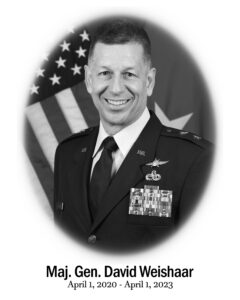 Maj Gen David Weishaar
Maj Gen David Weishaar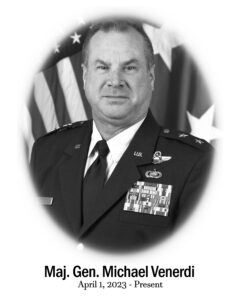
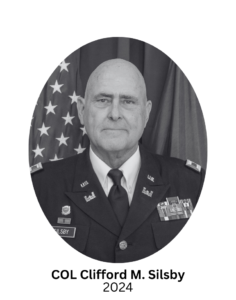
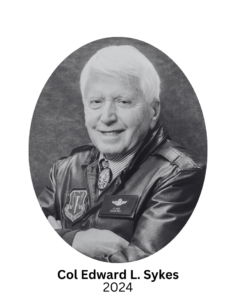
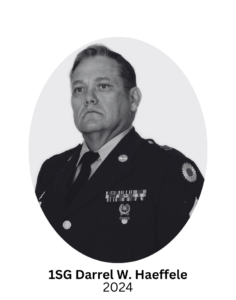 First Sergeant Darrel W. Haeffele was born on September 25, 1940, in Falls City, Nebraska. He graduated from Atchison High School in 1958. He attended Concordia College in Seward, NE for two years before starting a career in retail.
First Sergeant Darrel W. Haeffele was born on September 25, 1940, in Falls City, Nebraska. He graduated from Atchison High School in 1958. He attended Concordia College in Seward, NE for two years before starting a career in retail.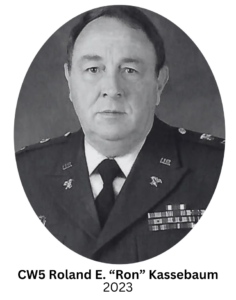 CW5 Roland E. “Ron” Kassebaum was born on February 21, 1946 in Deshler, Nebraska. He graduated from Hebron High School, Hebron, Nebraska in 1964. He attended Fairbury Junior College, Fairbury, Nebraska and the University of Nebraska, Lincoln, Nebraska, and received a Bachelor of Science Degree from the University of the State of New York in 1991. He later attended Liberty University, Lynchberg, Virginia, for courses in accounting and Allen County Community College, Iola, Kansas, for a course in Business Law.
CW5 Roland E. “Ron” Kassebaum was born on February 21, 1946 in Deshler, Nebraska. He graduated from Hebron High School, Hebron, Nebraska in 1964. He attended Fairbury Junior College, Fairbury, Nebraska and the University of Nebraska, Lincoln, Nebraska, and received a Bachelor of Science Degree from the University of the State of New York in 1991. He later attended Liberty University, Lynchberg, Virginia, for courses in accounting and Allen County Community College, Iola, Kansas, for a course in Business Law.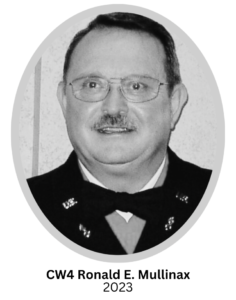 Chief Warrant Officer Four Ronald E. Mullinax was born on August 25, 1946, in Norton, Kansas to Earl and Mary Posson. He was adopted by John and Ada Mullinax. He grew up in Lenora, Kansas, graduating from Lenora Rural High School in 1965. After completing a Denver Automotive Institute training program, Ron worked at Look Body Shop in Norton until 1968.
Chief Warrant Officer Four Ronald E. Mullinax was born on August 25, 1946, in Norton, Kansas to Earl and Mary Posson. He was adopted by John and Ada Mullinax. He grew up in Lenora, Kansas, graduating from Lenora Rural High School in 1965. After completing a Denver Automotive Institute training program, Ron worked at Look Body Shop in Norton until 1968.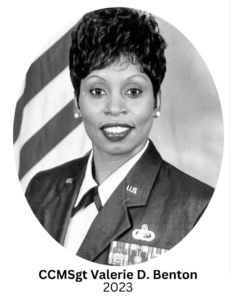 CCMSgt Valerie D. Benton was born on Dec. 10, 1959 in Racine, Wisconsin, where she spent her childhood. She graduated from Washington Park High School in 1978. Soon after graduation she enlisted in the U. S. Air Force and headed to Basic Training at Lackland AFB, Texas in December of 1978. After completion of Basic training, she attended Technical Training at Lowry AFB, Colorado, and graduated as a Food Service Specialist.
CCMSgt Valerie D. Benton was born on Dec. 10, 1959 in Racine, Wisconsin, where she spent her childhood. She graduated from Washington Park High School in 1978. Soon after graduation she enlisted in the U. S. Air Force and headed to Basic Training at Lackland AFB, Texas in December of 1978. After completion of Basic training, she attended Technical Training at Lowry AFB, Colorado, and graduated as a Food Service Specialist.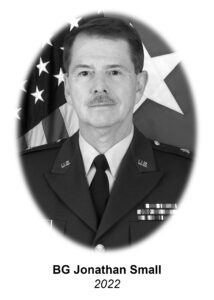 Brigadier General Jonathan P. Small served as The Adjutant General of Kansas from November 1, 2003 to January 4, 2004, culminating a 35-year military career as a distinguished attorney, community leader, citizen-soldier, and military leader. He served as Assistant Adjutant General-Army from 1999 to 2003, and as Commander of the Land Component for the Joint Force Headquarters-Kansas.
Brigadier General Jonathan P. Small served as The Adjutant General of Kansas from November 1, 2003 to January 4, 2004, culminating a 35-year military career as a distinguished attorney, community leader, citizen-soldier, and military leader. He served as Assistant Adjutant General-Army from 1999 to 2003, and as Commander of the Land Component for the Joint Force Headquarters-Kansas.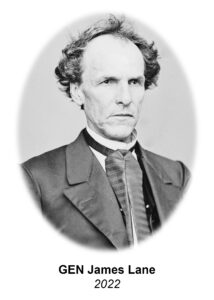 General James H. Lane was a militia leader during the Bleeding Kansas period, the commander of the Kansas “Jayhawker” Brigade during the Civil War, and was one of the first United States Senators from Kansas.
General James H. Lane was a militia leader during the Bleeding Kansas period, the commander of the Kansas “Jayhawker” Brigade during the Civil War, and was one of the first United States Senators from Kansas.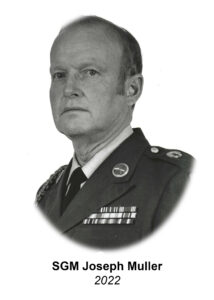 Sergeant Major Joseph T. “Jody” Muller was selected for the Kansas National Guard Hall of Fame for his exceptional service as a citizen soldier in the Kansas National Guard for over 41 years.
Sergeant Major Joseph T. “Jody” Muller was selected for the Kansas National Guard Hall of Fame for his exceptional service as a citizen soldier in the Kansas National Guard for over 41 years.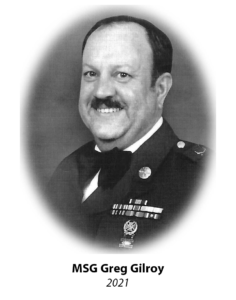 Master Sergeant Greg Gilroy was born on July 25, 1947 at Ottawa, Kansas. He was a lifelong resident of Ottawa, graduating from Ottawa High School in 1965. He then attended Emporia State University during the 1965-66 school year.
Master Sergeant Greg Gilroy was born on July 25, 1947 at Ottawa, Kansas. He was a lifelong resident of Ottawa, graduating from Ottawa High School in 1965. He then attended Emporia State University during the 1965-66 school year.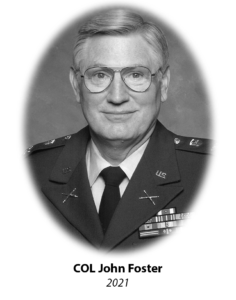
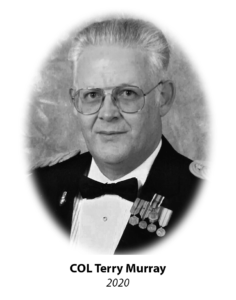
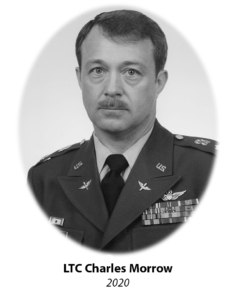


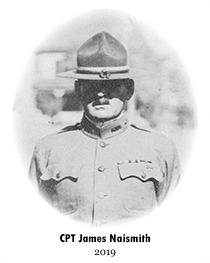
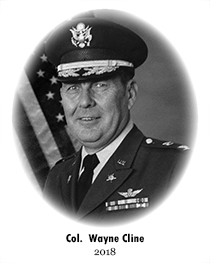
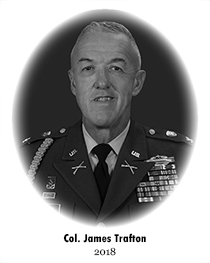
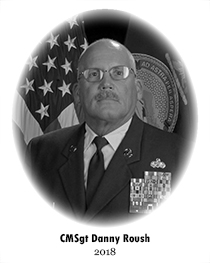
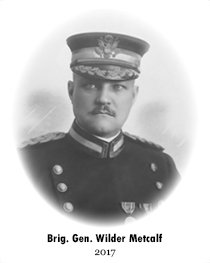
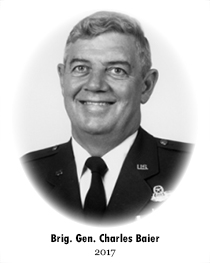
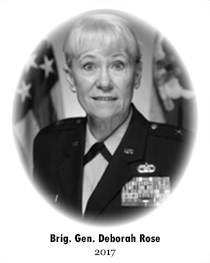 Brigadier General Deborah Rose entered military service with a direct commission into the United States Air Force Nurse Corps in March 1983, assigned to the 184th Tactical Fighter Group. She transferred to the 190th Clinic in December 1985. In October 1990, she deployed to Jeddah, Saudi Arabia, where she served in an Air Transportable Hospital during Desert Shield. In February 1991, she was activated and deployed to Offutt AFB, Nebraska, assigned to the hospital.
Brigadier General Deborah Rose entered military service with a direct commission into the United States Air Force Nurse Corps in March 1983, assigned to the 184th Tactical Fighter Group. She transferred to the 190th Clinic in December 1985. In October 1990, she deployed to Jeddah, Saudi Arabia, where she served in an Air Transportable Hospital during Desert Shield. In February 1991, she was activated and deployed to Offutt AFB, Nebraska, assigned to the hospital.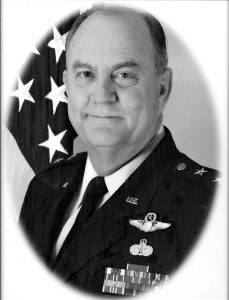
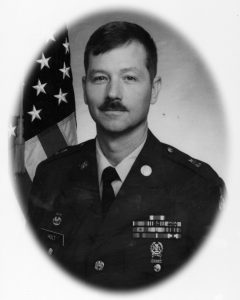 Sergeant Major Lynn E. Holt built his distinguished Kansas Army National Guard career developing strength, retaining Soldiers and insuring Soldiers received proper training. He served from the Detachment through State level. He is known for his ability to recognize Soldier needs at all levels. The same care he felt for Soldiers carried over into his community activities. SGM Holt’s passion for people and their needs exemplifies his true character. He devoted his entire adult life to the betterment of our nation, our state and the Kansas National Guard.
Sergeant Major Lynn E. Holt built his distinguished Kansas Army National Guard career developing strength, retaining Soldiers and insuring Soldiers received proper training. He served from the Detachment through State level. He is known for his ability to recognize Soldier needs at all levels. The same care he felt for Soldiers carried over into his community activities. SGM Holt’s passion for people and their needs exemplifies his true character. He devoted his entire adult life to the betterment of our nation, our state and the Kansas National Guard.